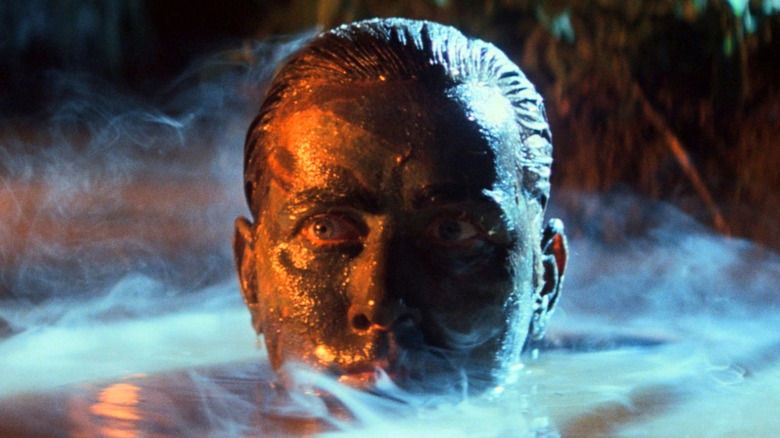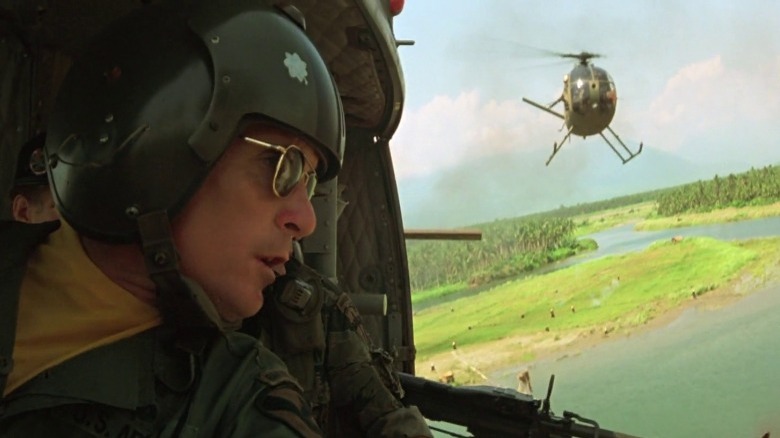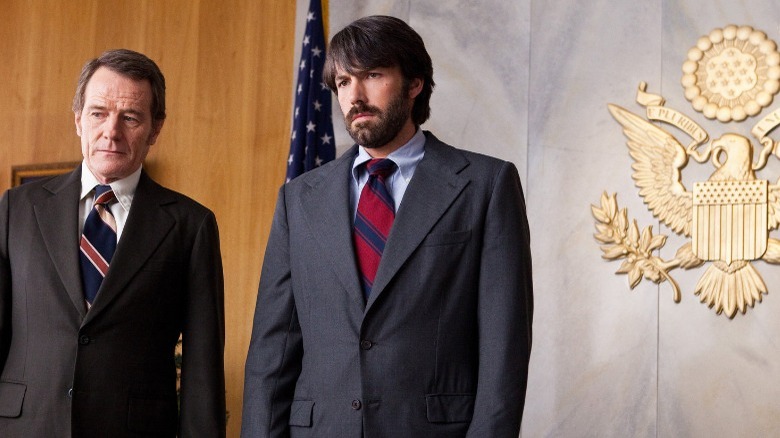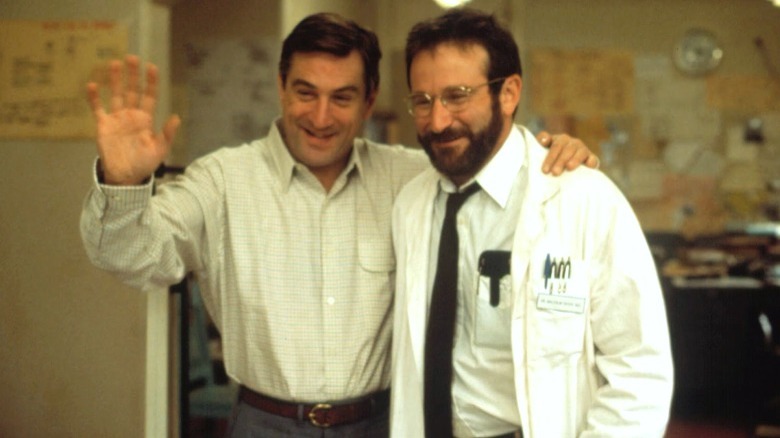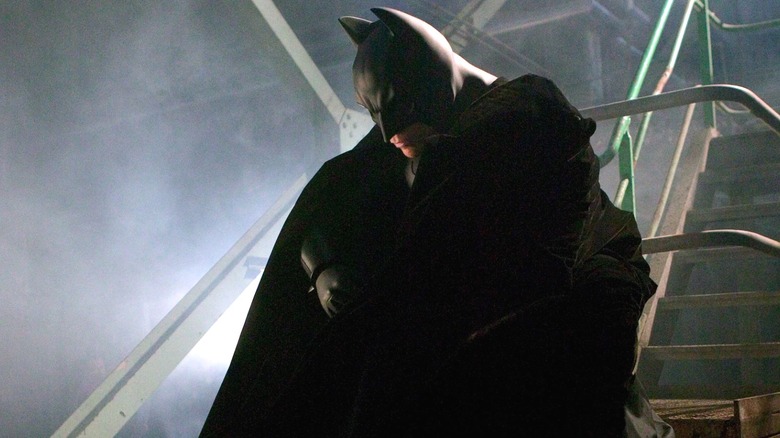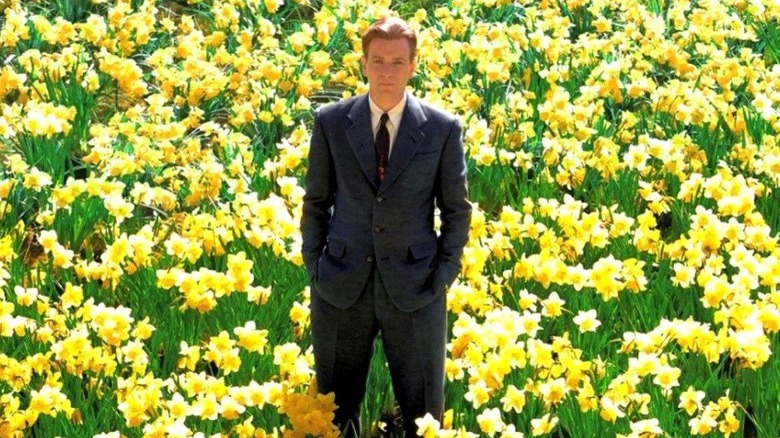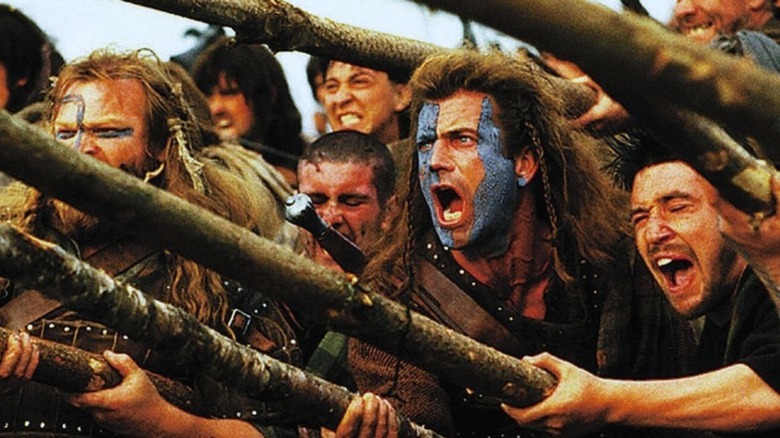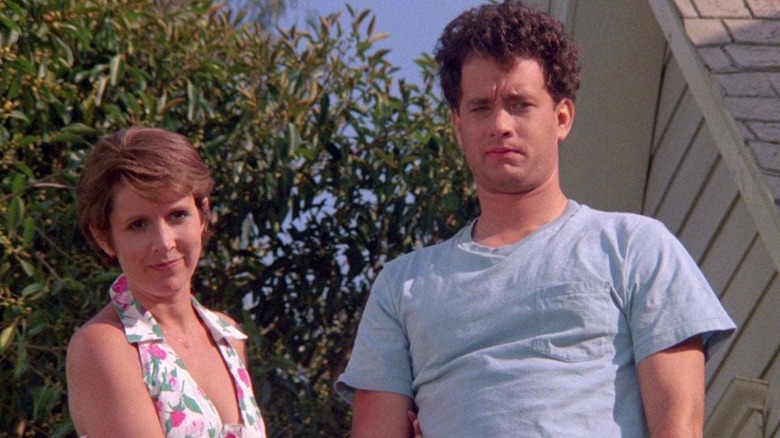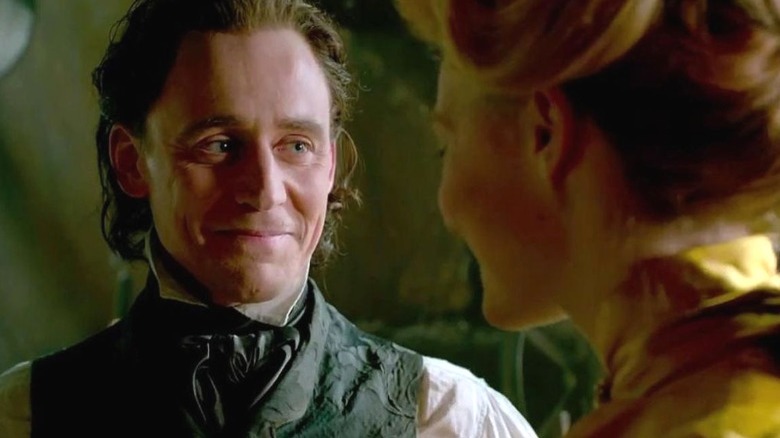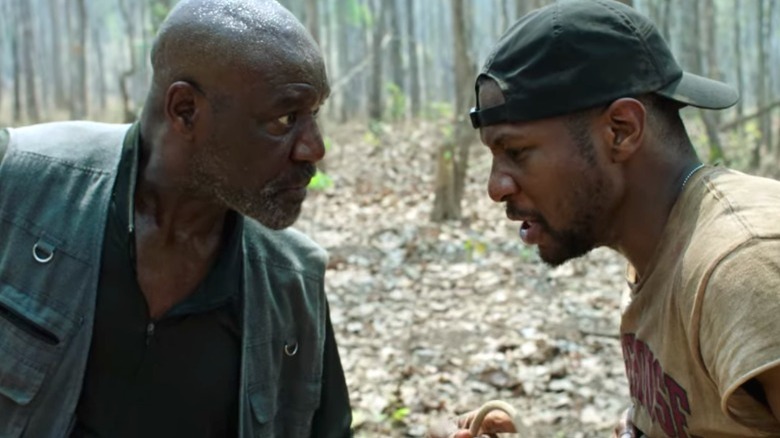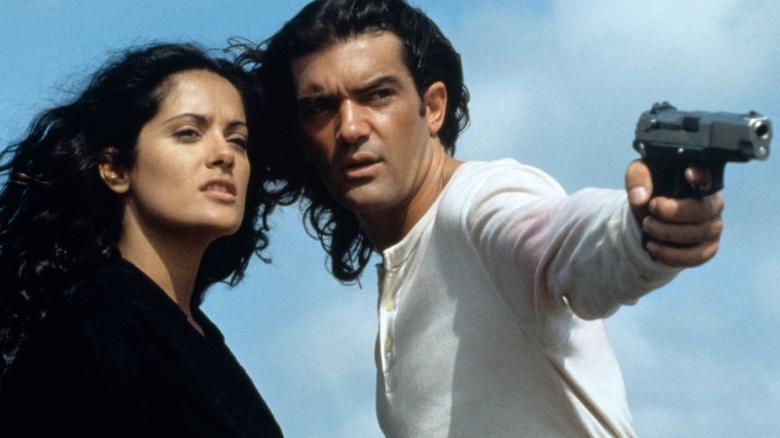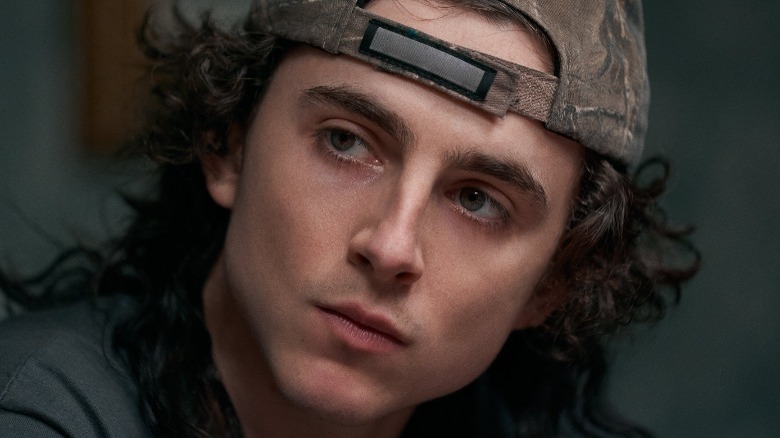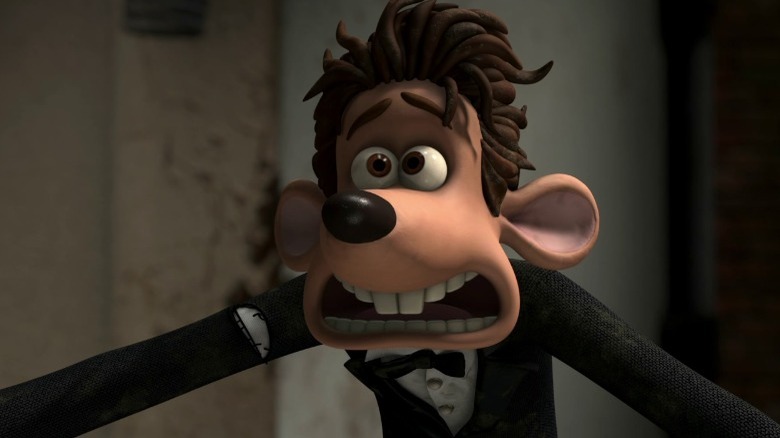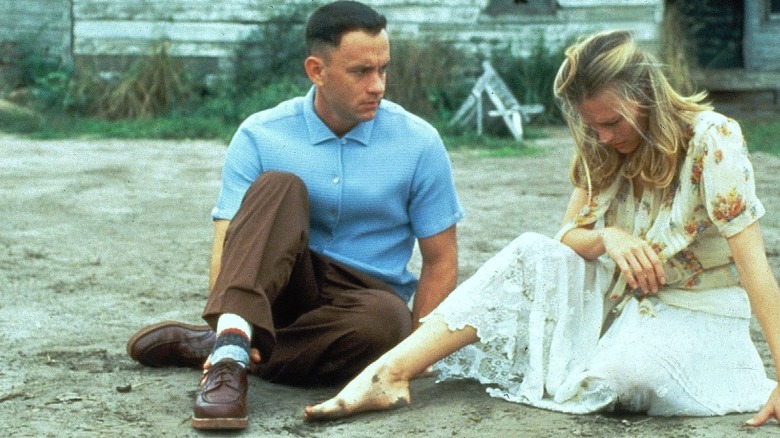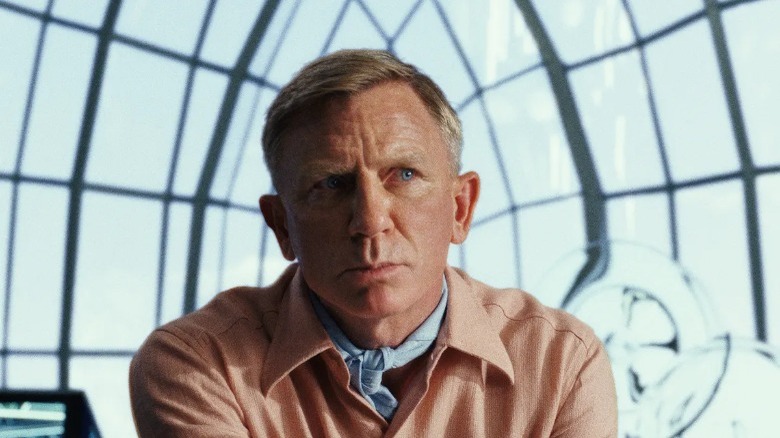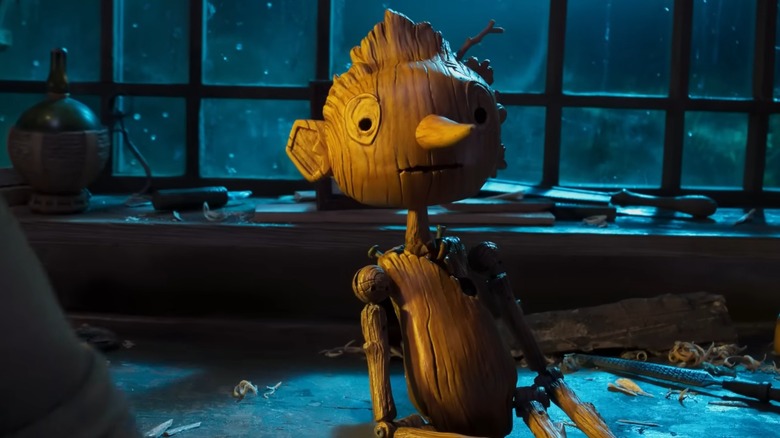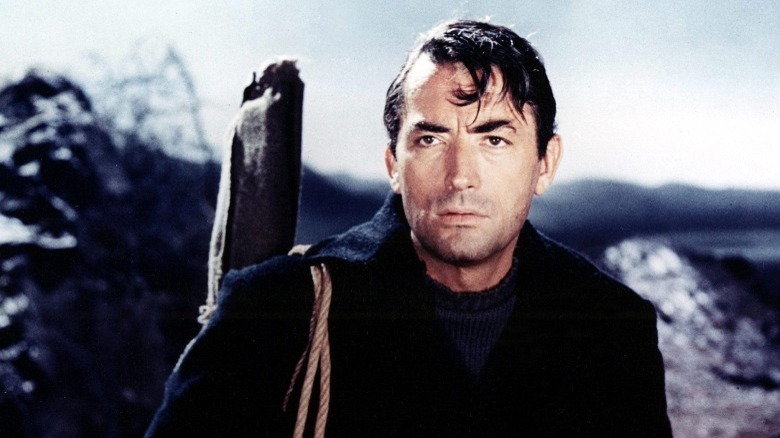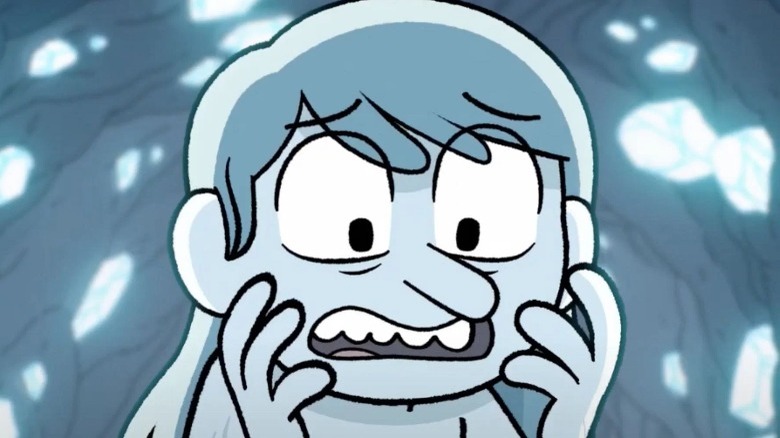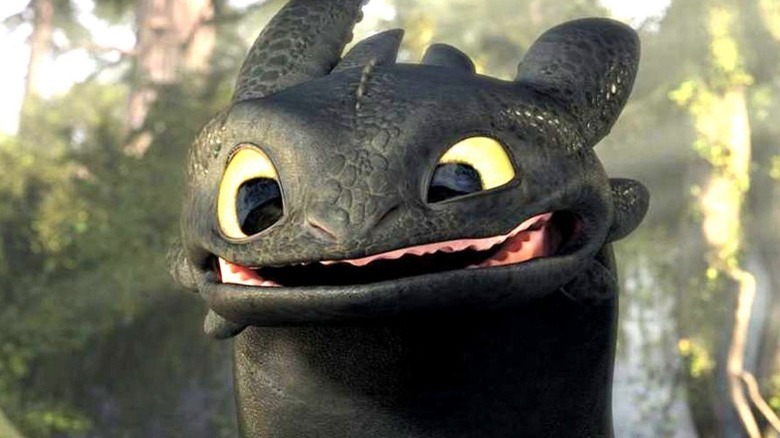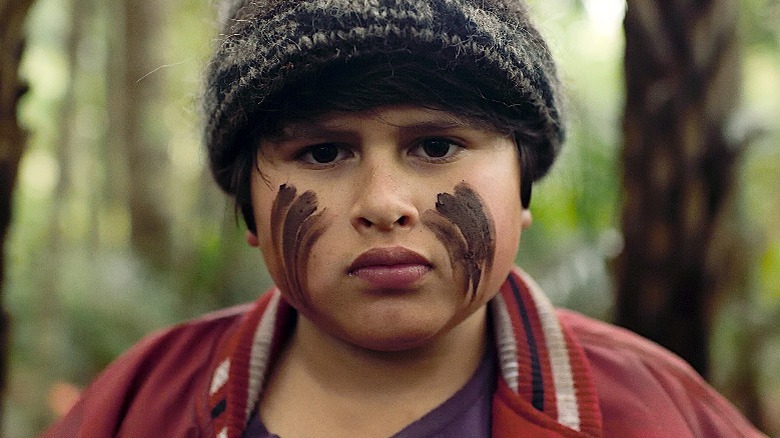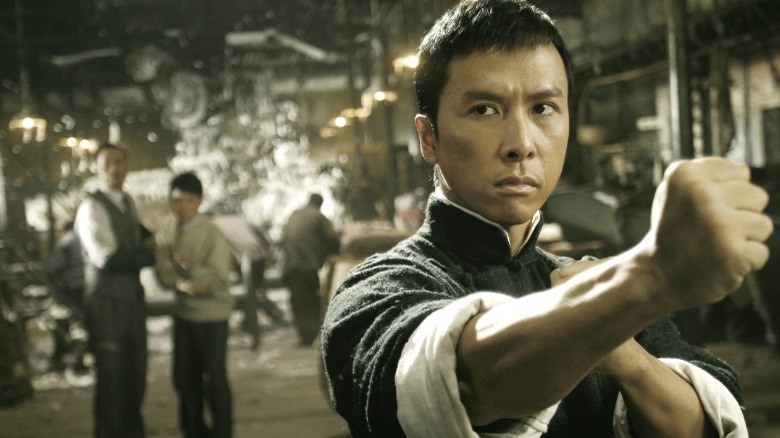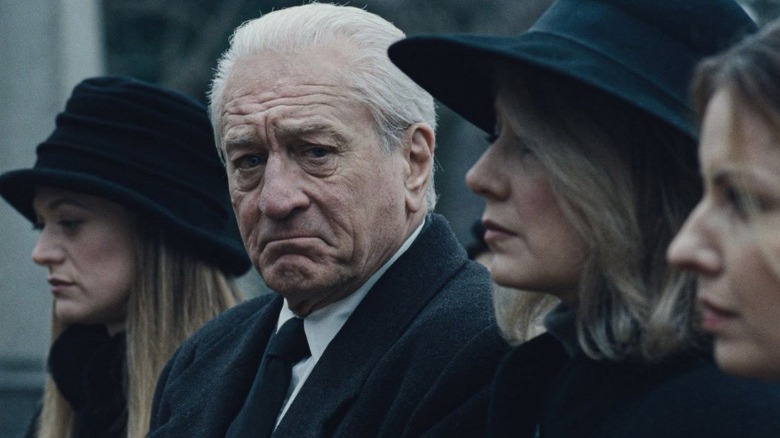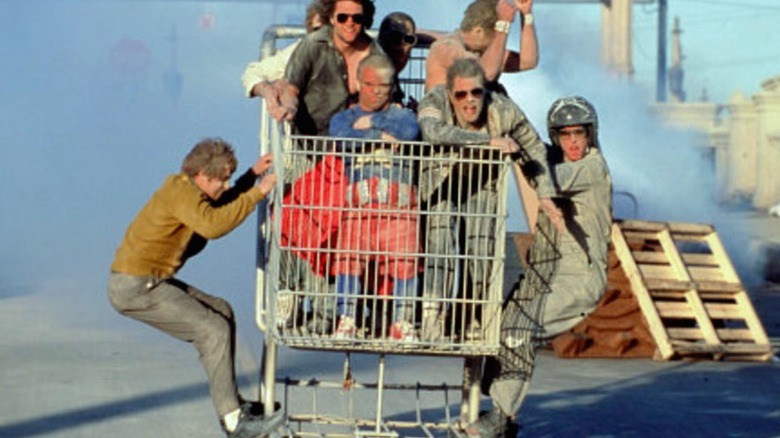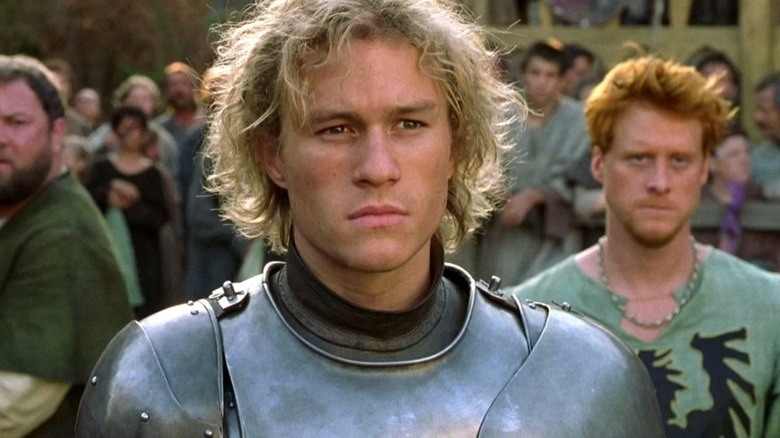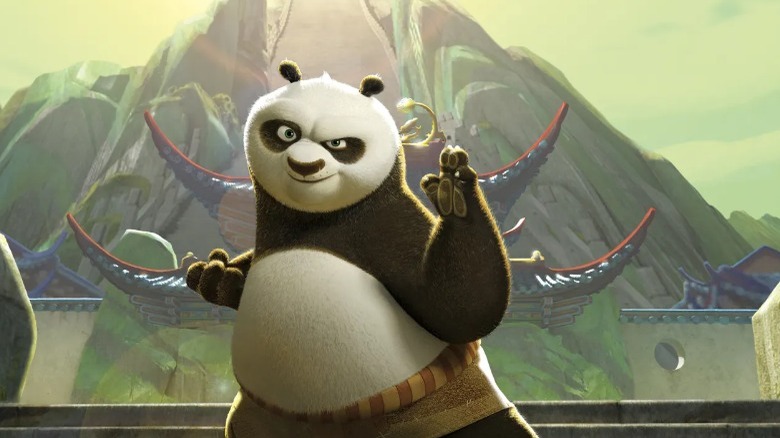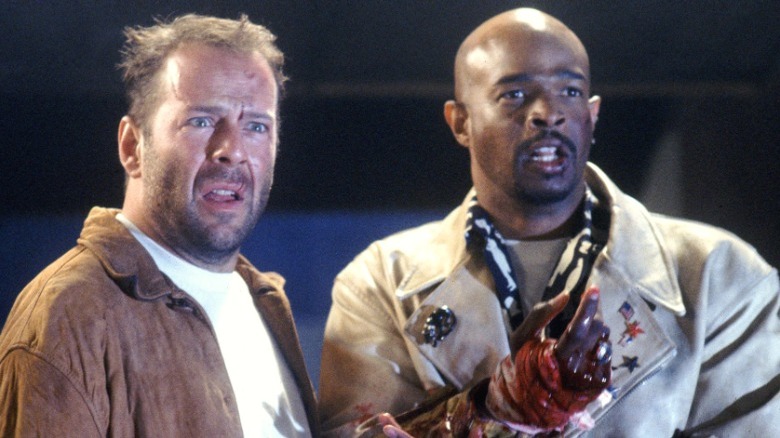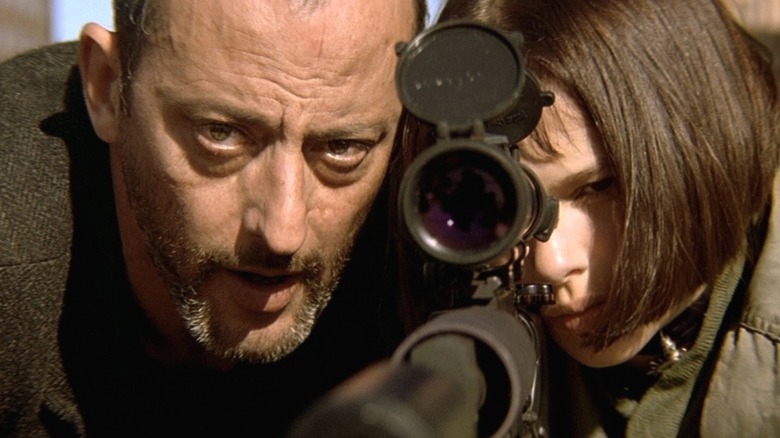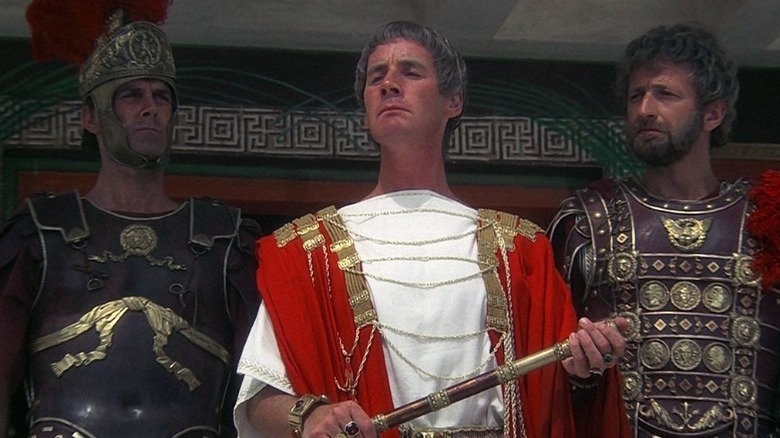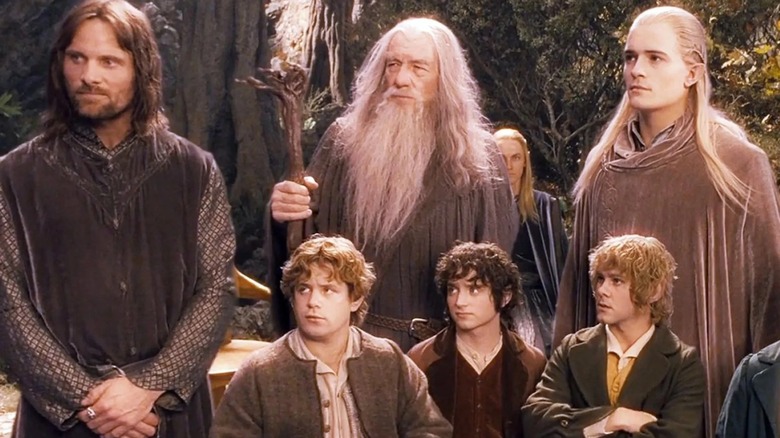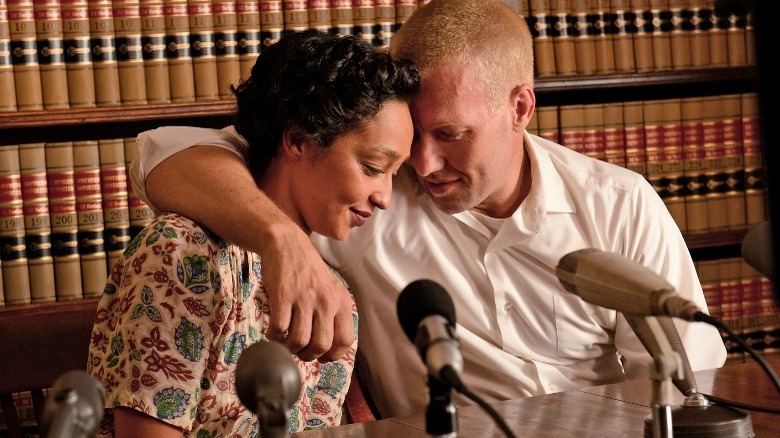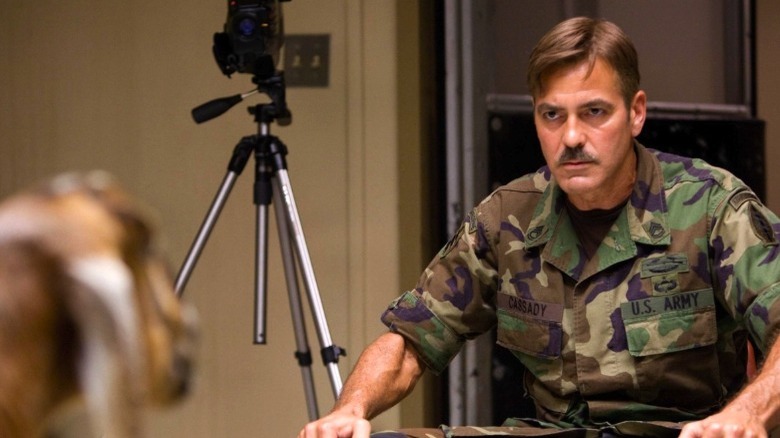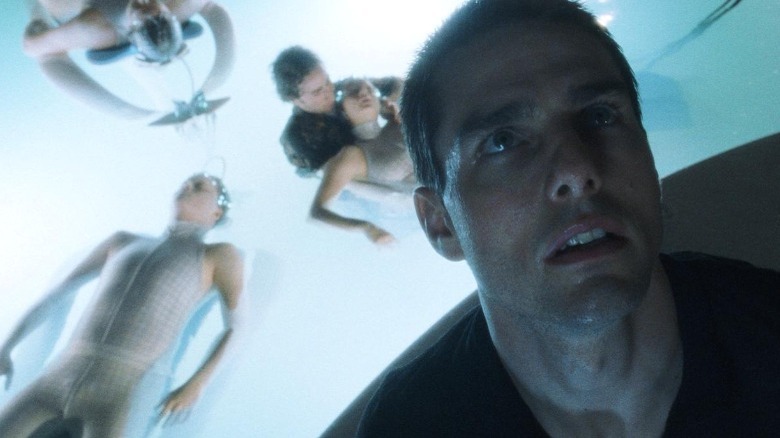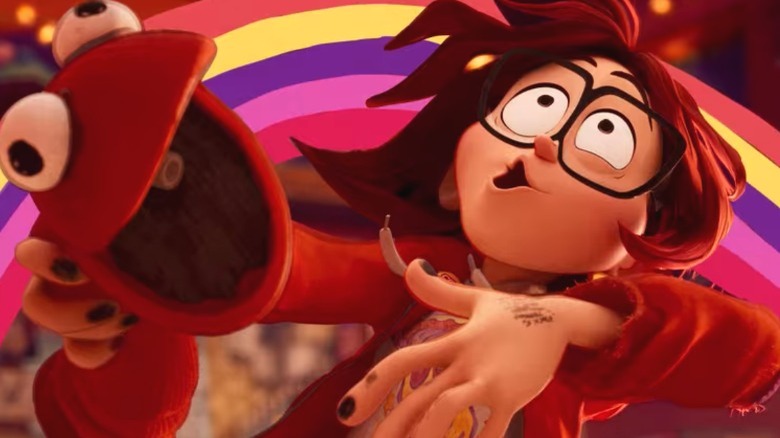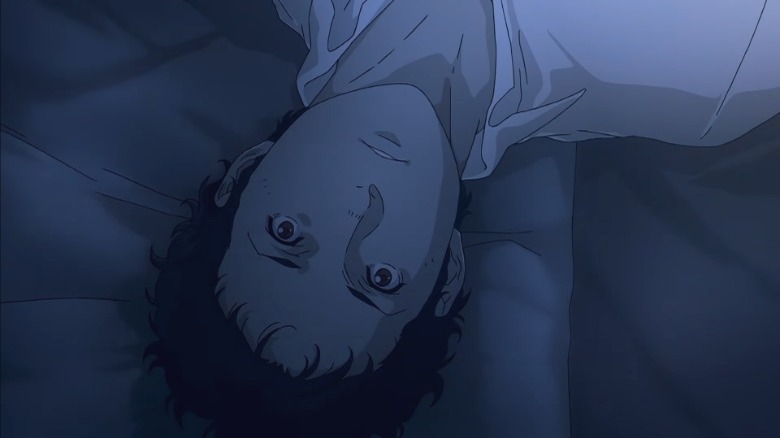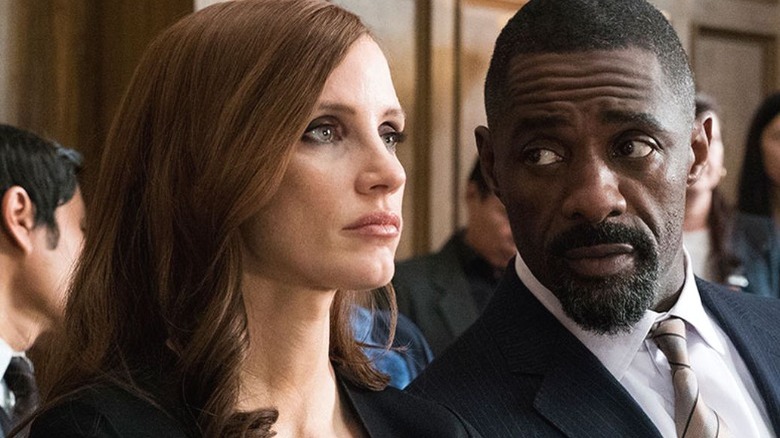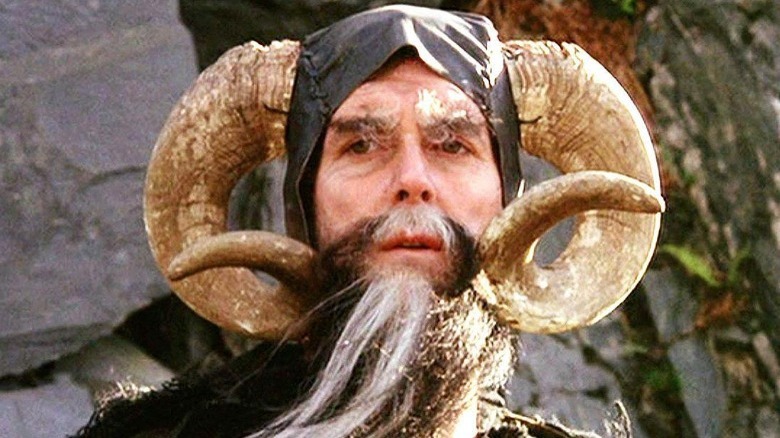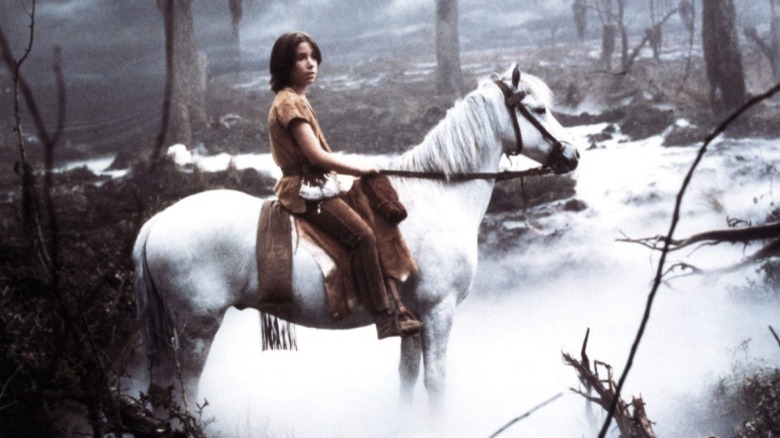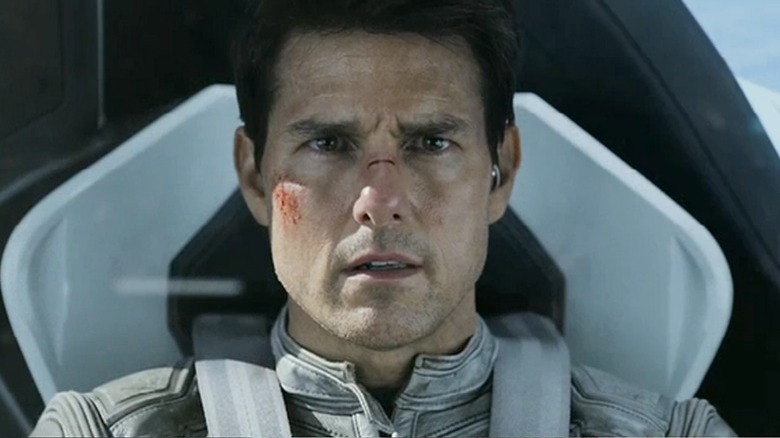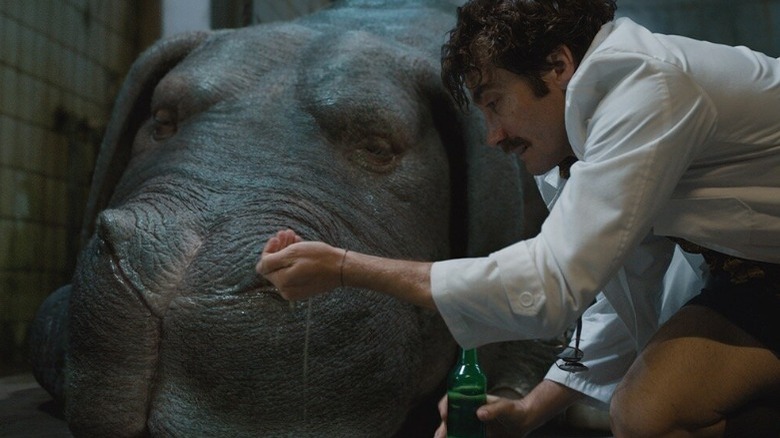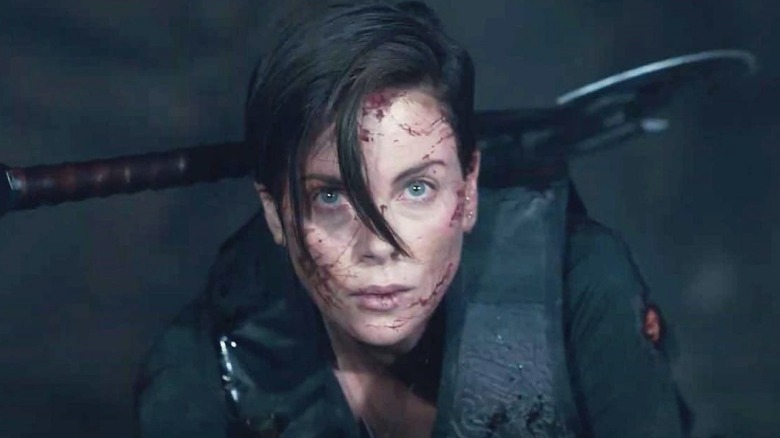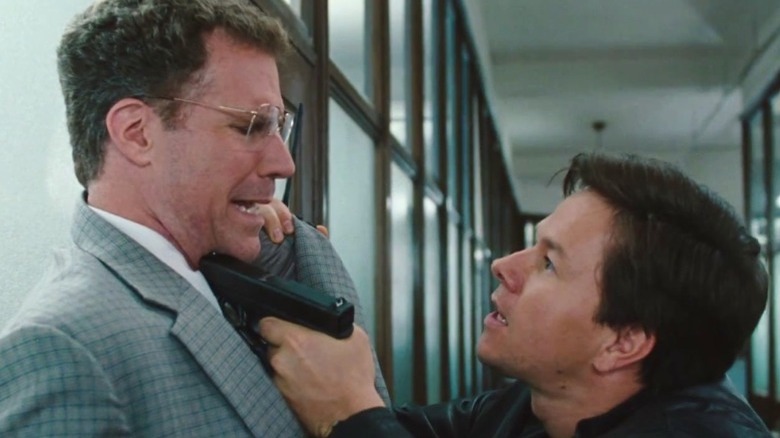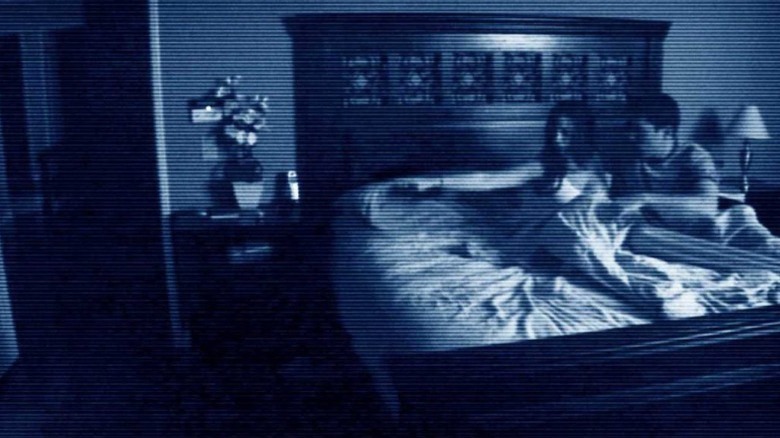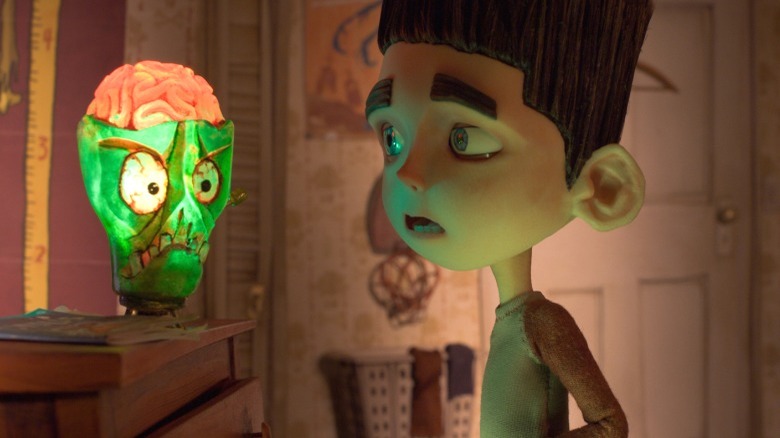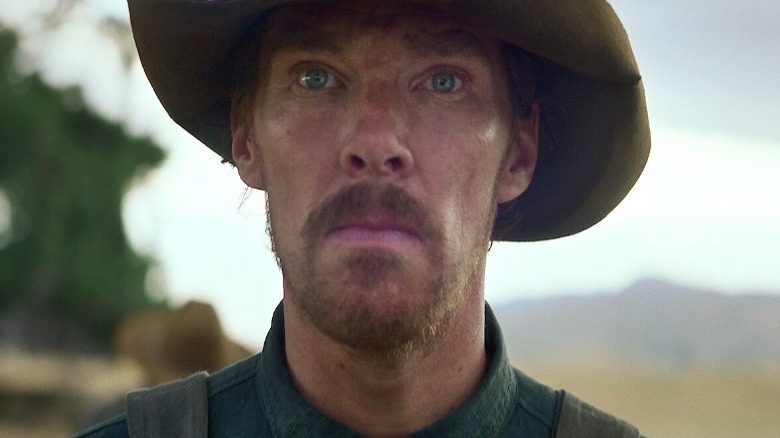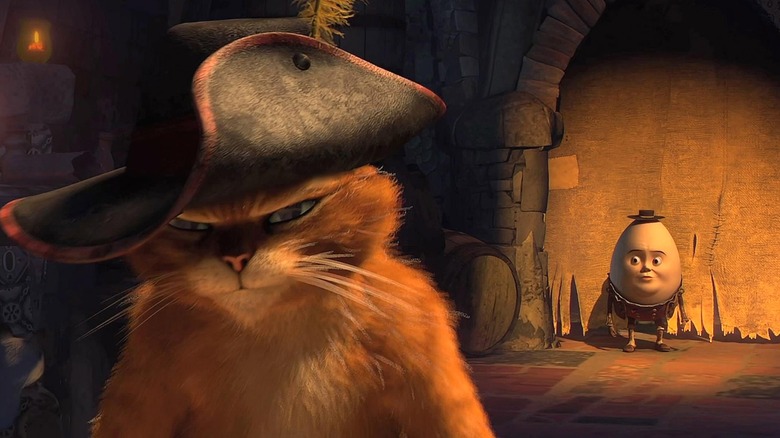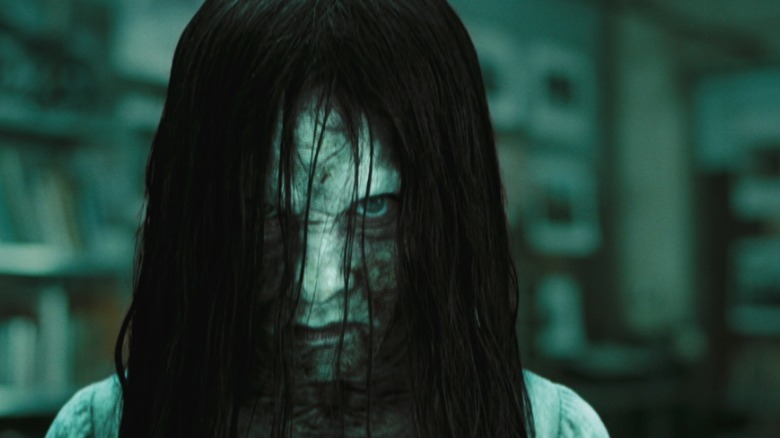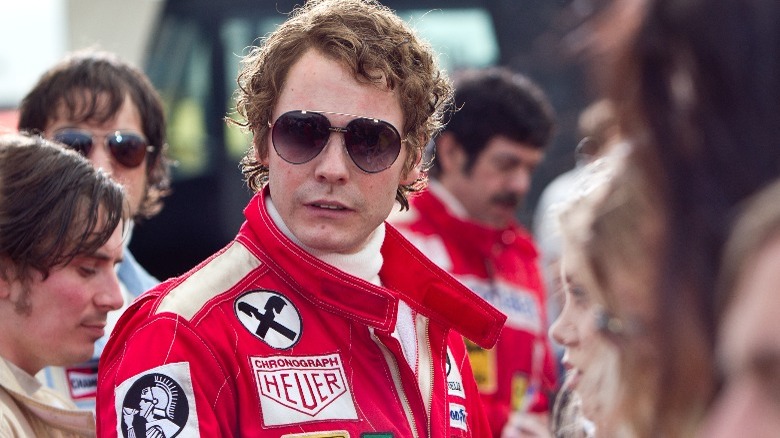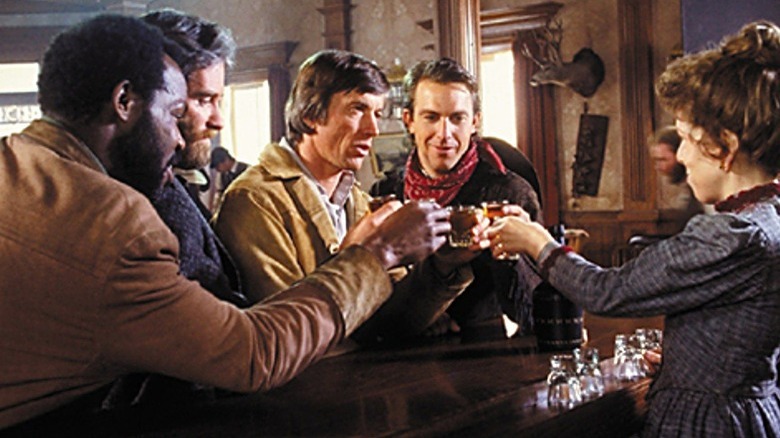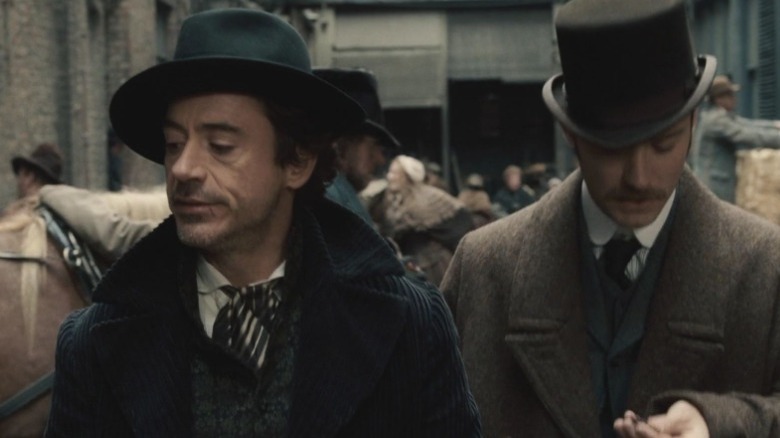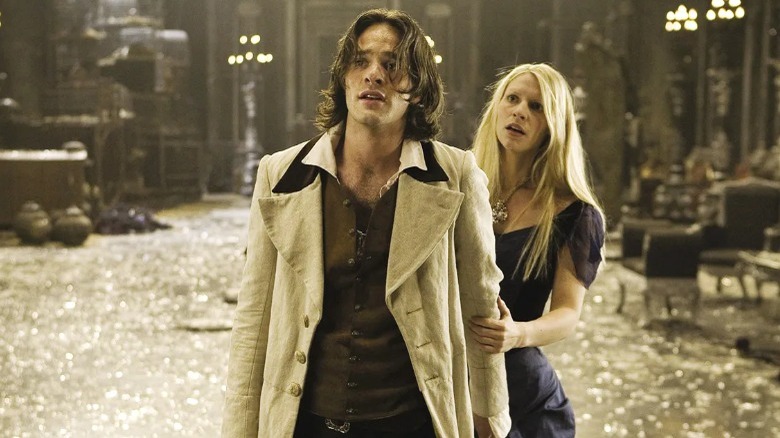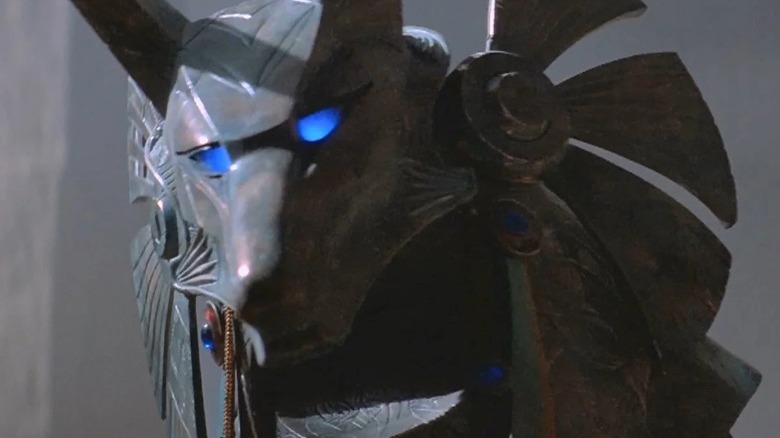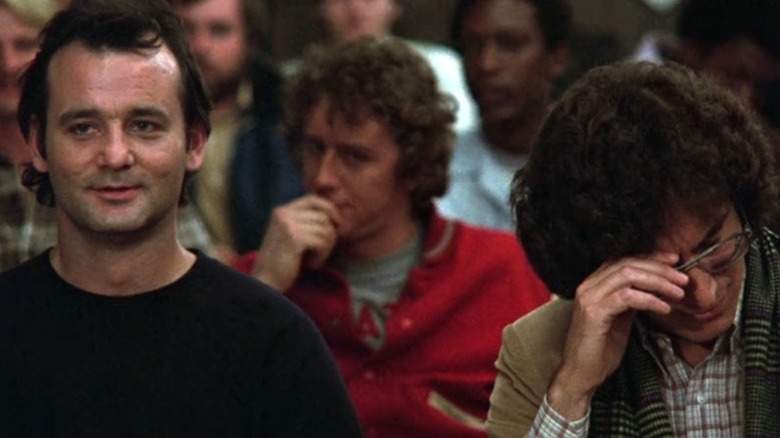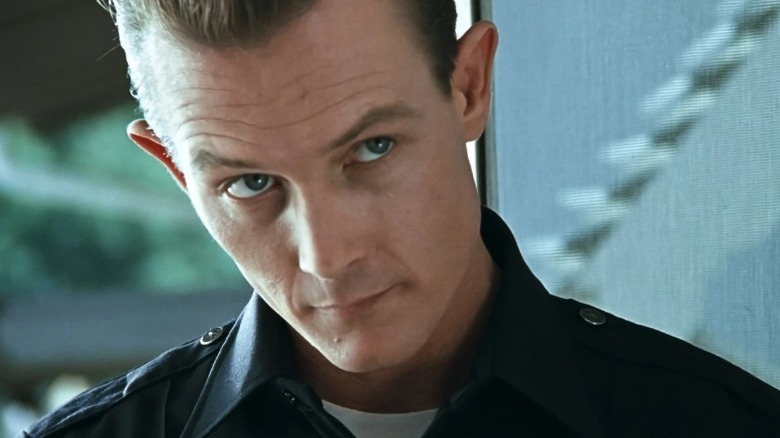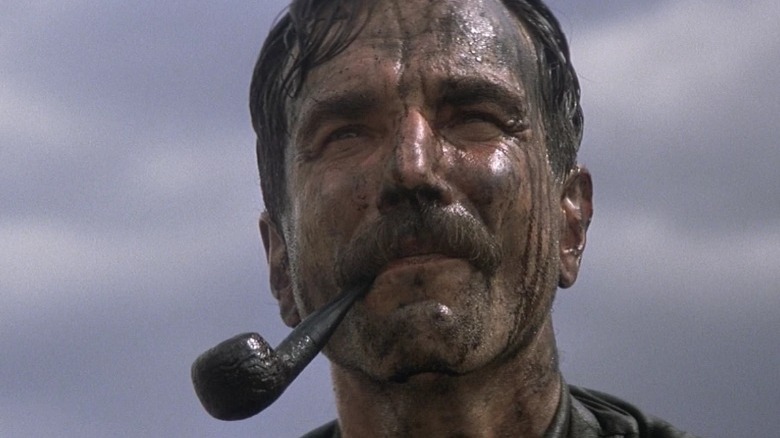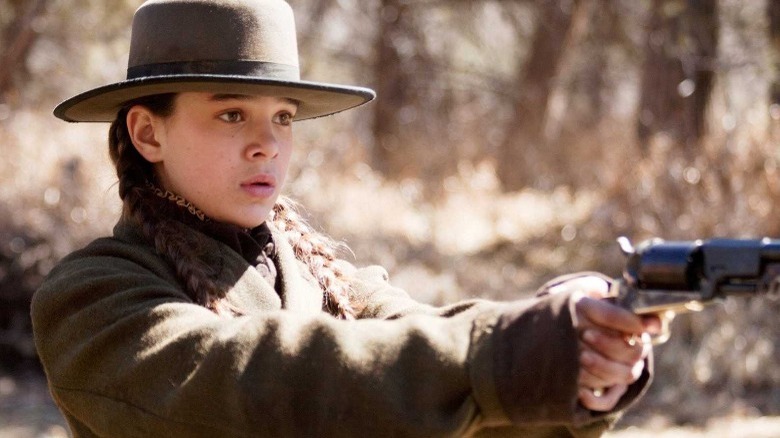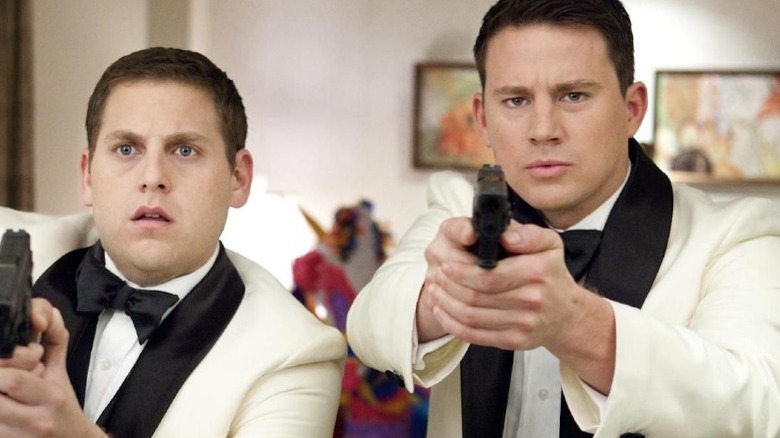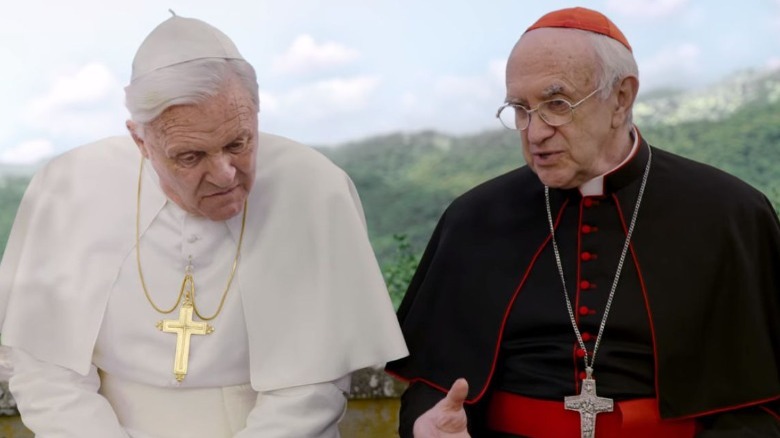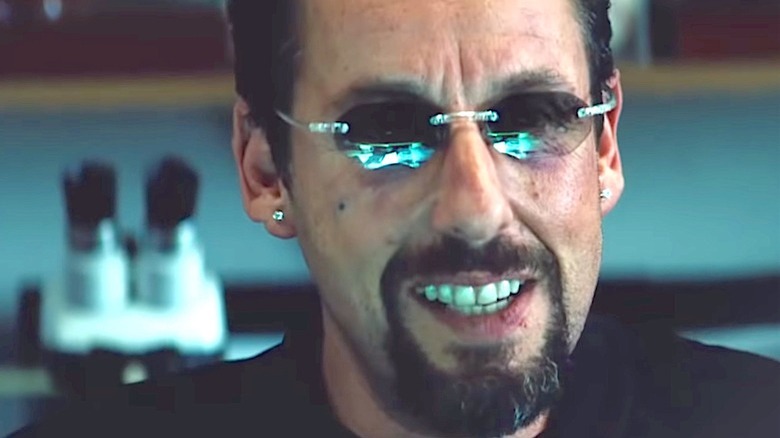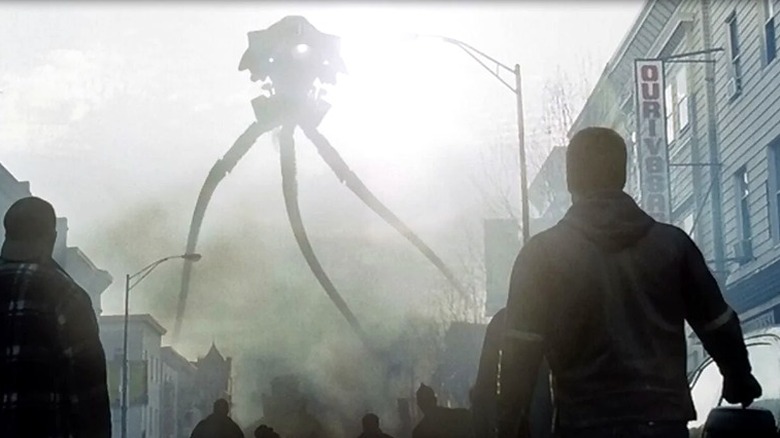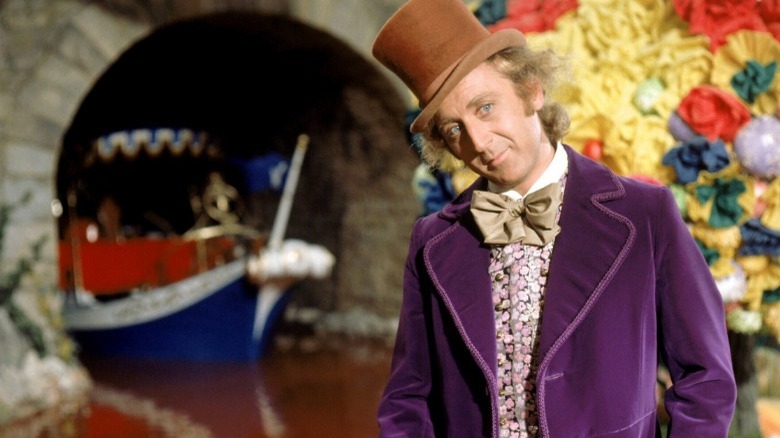The 60 Best Movies On Netflix Right Now (February 2023)
For many viewers, Netflix remains the standard bearer for streaming content. With over 200 million subscribers worldwide, the service retains its reputation as the big mother of online streaming. Once the queen that slew Blockbuster with a hassle-free combination of content on DVD and on demand, the stately Netflix has entered a more competitive era, but is primed to weather the storm.
Netflix has seen its once-enormous stable of cross-studio content dwindle as almost all of those studios seek to grab their own slice of the streaming pie, but it still has a daunting wealth of movies and TV to binge. In addition to renewed interest in imports after the success of Hwang Dong-hyuk's blockbuster series "Squid Game," Netflix has plenty of original content, too. That adds up to a ton of stuff to poke through for a night in with the movies, so to help viewers who are tired of scrolling endlessly through the service's genre panels, here's a curated list of the best movies Netflix currently has on offer.
Apocalypse Now
Francis Ford Coppola fought his own war to complete "Apocalypse Now," and my only complaint is that it's a shame that the "Hearts of Darkness" documentary detailing the production isn't always made available alongside the film. But one doesn't need all the backstory to appreciate Martin Sheen's descent into primal madness during the turbulent years of the Vietnam War. It just adds a little spice, which poor Chef (Frederick Forrest) would probably appreciate.
An update of the Joseph Conrad novel that gives the making-of doc its name, "Apocalypse Now" follows a hunter on the trail of a man gone AWOL. Colonel Kurtz (Marlon Brando) is turning himself into a god-king of death just inside the borders of Laos, and the U.S. Army, which has been napalming villages and leaving gutted soldiers to die, thinks that Kurtz's unauthorized kill squads are a bridge too far. It's a movie about the hypocrisy and chaos of war, and every rewatch sparks a new conversation.
Argo
Whether you like the organization or not, the CIA has enough wild but true stories in its history to fascinate anyone. From Operation Acoustic Kitty, where agents who clearly never actually lived with a cat thought using one to eavesdrop on enemy operatives was a great idea, to the dolphin thing (don't ask), a fake movie production used to extract prisoners from Iran is almost quaint in comparison. But yeah, it basically happened. In 1979, Canadian officials and CIA agents used the failed production of "Lord of Light" to extract six diplomats who had escaped the initial Iranian hostage crisis.
Ben Affleck plays Tony Mendez, the CIA specialist in charge of coming up with a plan zany enough to work. For most of the film, the moviemaking story stays in place, with Mendez scouting locations as an ersatz film producer. In truth, he's trying to keep all his plates in the air, with real film crew members involved in a secret operation and a race against time as Iran tries to maintain control over the crisis. The happy ending is spoiled by history, but the story, known in real life as the Canadian Caper, is still a hell of a trip.
Awakenings
Dr. Oliver Sacks died in 2015, and he left behind a trove of terrific, empathetic stories about the toughest struggles a human can face. A neurologist on the rise in the 1960s, he was assigned to a care ward for victims of the 1920s encephalitis lethargica pandemic, which killed half a million people and left many survivors locked in a mysterious catatonia. Robin Williams plays a fictionalized version of Sacks named Dr. Sayer in "Awakenings," while Robert De Niro appears as Leonard, who stands in for the many patients who had a brief but poignant recovery thanks to a new pharmaceutical treatment.
The film shares Sacks' empathy. It's less about the medicine than the lives that Sayer's experimental treatment gave back and what the experience says about Sayer's own introverted behavior. It's poignant and melancholy, and you'll feel some frustration that, a century later, the riddle of the epidemic still hasn't been solved. Still, the film delivers on its most important lesson: With whatever time you have, love and be loved, and enjoy what you can to the fullest degree.
Batman Begins
Remember when superhero movies were rare and usually sucked? "Blade" may have been the spark that got us here, but the momentum the genre really needed came with Christopher Nolan's brutalist take on Bruce Wayne, as first seen in 2005's "Batman Begins." The sometimes-goofy theatrics that marked the animated version of the Bat Family in the beloved "Batman: The Animated Series" are gone in this malicious take on Gotham. As Bruce Wayne, Christian Bale is charming and urbane, but there's a coldness to his Batman that makes him feel unstoppable.
Fifteen years later, the Ra's al Ghul twist is iffier than ever, but it's not a flaw that sinks the film. Cillian Murphy more than picks up the slack with a spin on the Scarecrow that's one of the best, either on the comic page or otherwise. The action sequences, with their heavy reliance on stunts and practical effects, remain some of Nolan's best. Nolan may have gone bigger with his later films, but it's the combination of intricacy and close-up realness that makes this one hold up.
Big Fish
"Big Fish" marks arguably the last time that Tim Burton weaponized his pastel-gothic aesthetic to create something imaginative, heart-wrenching, and immortal. It's also a film I saw in the theater less than three days after my grandfather died. Take my advice: Wait a week or two after losing someone to watch this if you don't want to be a soppy kitchen towel for a couple of hours.
Although grief and loss are the biggest emotions, "Big Fish" is really about the immortal power of stories. It's also about reconciliation, of course, but the stories are the key. Billy Crudup's frustration over finding the truth behind the fantastical whoppers his dad told is understandable, but he's also an example of a man who's fixated on the wrong question. The revelations that come at the end of the film do nothing to dispel the illusions that the Bloom patriarch left behind; in fact, they make them more real than ever. This is one of Burton's best and most poignant films.
Braveheart
Everyone should know not to expect accuracy from a historical drama. The Academy Award-winning "Braveheart" is a great film, an honest-to-God Mel Gibson classic. The costumes, the characters, the setting, hell, the music. All of it slaps. The history is a godawful, purely fantastical mess, although it's pretty rich for English critics to call its pro-Scottish viewpoint xenophobic.
William Wallace (Gibson) is a young Scot who finds love after years of journeying alongside his uncle Argyle, played by an underused Brian Cox. Educated and proud, Wallace's beautiful wife is quickly fridged by Patrick McGoohan, who plays a mustache-twirling, scenery-chompin' King Edward, in a ploy to break Scottish spirits. One gets the sense that McGoohan loved Alan Rickman in "Prince of Thieves" and was shooting for a moderately subtle homage. Anyway, rebellion breaks out, there's betrayal and tragedy, and Gibson gets to have his Christ-as-sacrifice story way back before we really knew that was a thing for him. But the whole package is glorious, and still as good a watch as it ever was.
The 'Burbs
The latest generation of movie fans only knows Tom Hanks as America's Cool Dad, uplifting nearly every movie he's in with gravitas and craft. But he used to be one of our major on-screen goofballs, and one of his best comedies overlaps with the height of Joe Dante's greatest era. It helps that Carrie Fisher, who co-stars as Hanks' character's wife, was a script doctor on "The 'Burbs," an underrated, over-the-top jewel that will, for a few minutes, make the idea of a homeowner's society seem not so bad.
Ray Peterson (Hanks) is a small town schlub who's having a staycation before society made it cool. Unfortunately, his neighborhood is full of kooks, especially the family that just moved in. The reclusive Klopeks aren't lovable like the Addams family, and there's a lot about them that screams "serial killer" to Ray's buddy Art (Rick Ducommun). On one hand, who among us doesn't look like a freak to our neighbors? On the other, Art may have a point. On the way to exposing the Klopeks as murderous weirdos, everyone, including Ray, goes way over the top — and way across the line.
Crimson Peak
Guillermo del Toro makes the movies he always wanted to see, and in so doing recognizes our secret adoration of monsters and their sublime, Gothic beauty. The monsters of "Crimson Peak" are human ones, and the real ghosts are the broken pieces of their minds that drive them into committing acts of horror. The ghosts the audience sees are harmless echoes, trapped by their actions in life, unable to move on until they've found some measure of grace.
As Sir Thomas Sharpe, Tom Hiddleston isn't our protagonist. That's Mia Wasikowska's Edith Cushing. But it's hard to take our eyes off his haunted, gallows-sharp face, especially when we realize that he's the first victim in this classical gothic romance. It's also hard to take our eyes off a couple other things that work in Sharpe's favor, too. Jessica Chastain is appropriately shivery in her role as the elder Sharpe sister, but the real stars are the settings, including a beautiful ruined manse that efficiently symbolizes the Sharpes' internal decay.
Da 5 Bloods
Don't be fooled by the hype claiming that "Da 5 Bloods" is Chadwick Boseman's show. His spirit moves the film — literally, even — but his on-screen presence is slim. The real focus here is on Delroy Lindo and Jonathan Majors, who play a father and son duo who are haunted by the legacy of Lindo's time in the Vietnam War. It's a fresher perspective on the conflict than the ones we've seen before; "Good Morning Vietnam," "Apocalypse Now," and the rest miss the devastation that the conflict wreaked on America's Black troops.
What briefly seems to be a nostalgic trip to lay old memories to rest turns into a gory treasure hunt and a return to violent struggles between the invading West and Vietnam's residents (as well as some pointed anti-Trump commentary). There's a lot to critique about the way this film, otherwise as keen to racial divisions as the rest of Spike Lee's work, misses a bunch of opportunities to explore the other divide present in the Vietnam War. It's too easy to ignore the Vietnamese and their culture in these kinds of films. Even here they're reduced to one or two decent representations, and a whole lot of generic enemies. Still, it's a great Spike Lee film, full of all the heart and rage he can muster.
Desperado
Robert Rodriguez is the action genre's answer to John Carpenter. He makes his best films with as few resources as possible; giving him a too-decent budget has a chance to hamstring the results. "Desperado," a sequel to the real-thin "El Mariachi," is proof positive of this, its slim seven-million-dollar budget blown on a fine cast and a bunch of pyrotechnics and blood squibs.
Antonio Banderas may brood for the bulk of this lovingly-shot flick, but he broods beautifully. Moments that bring shocked laughs also help keep the movie from falling into melodrama. Yes, Banderas is still avenging a lost love, but look, here's Danny Trejo in one of the funniest sequences in the whole show. Steve Buscemi has a small but note-perfect role as El Mariachi's informant, introducing the movie in a storyteller's prologue that prepares the audience to accept the unreal amount of survivable bloodshed about to happen. This El Mariachi is a legend, and legends just don't die.
Don't Look Up
God, it must suck to be a scientist when everyone around you is dead set on being a useful idiot. That's the premise of "Don't Look Up," the most obvious metaphor for the current pandemic we could have asked for. Two astronomers, Jennifer Lawrence and Leonardo DiCaprio, have to convince the world to do something, anything, effin' anything at all about the species-annihilating comet they know is about to strike. But y'know, the polls aren't looking great and hey, maybe the comet's worth something to our lagging rare mineral industry! Surely that won't end poorly.
It's depressing stuff, like Richard Dreyfuss's meltdown to the mayor in "Jaws" writ large and with much higher stakes. It's supposed to be funny, and it often is, but "Don't Look Up" is too on point right now to offer more than a bitter, knowing chuckle. At least the mid-credits scene offers us peons some catharsis. In reality, the billionaires trying to settle other planets for their weird libertarian rich boy parties are on track for roughly the same fate.
Flushed Away
Hugh Jackman is a rat. All right, technically he's a mouse in the cult Aardman Animation film "Flushed Away," but as Roddy, he exhibits vain, rat-like behavior. Roddy thinks he's all that and a bag of salt and vinegar crisps, but when an accident flushes him down the sewers into Ratropolis, he realizes that he's compensating for his loneliness as the family pet. (Which is accurate; if you want to keep pet mice, they're social critters. Get at least two.)
Roddy's snooty behavior lands him in a variety of noir-style hijinks, including getting to canoodle with the obligatory sweet thing, Rita (Kate Winslet), who's sharper than she appears. But don't watch this charmer for the plot. Watch it for the best group of evildoers and henchmen you'll find in all-ages animation. You have Ian McKellen as The Toad, King Charles' castoff pet. You have Jean Reno as Le Frog, a ... "professional," we might say. And you have Andy Serkis and Bill Nighy as henchrats. It's terrific. You'll have a great time.
Forrest Gump
"Forrest Gump" seems more saccharine than ever. With its sunny-side look at some of the most turbulent decades in American history, it was already too sweet at release for some audiences. But deep down, that's the point of Tom Hanks' fumbling, disadvantaged young man. Forrest is a good kid for his whole life. He's not a fool, though he is disabled. He knows terrible things are going on in the world around him. He knows Jenny's life is hard and that war is a hellscape. But Forrest's constant, awkward response to it all is to be kind.
It's a message that gets muddled by the way director Robert Zemeckis draws attention to some big moments in American history. It's neat that we can see Gump standing next to JFK, but that's not the real story for Forrest. He's just trying to build a decent life so that he can help out his friend, Jenny. And when Jenny needs him, he's there. The future is happening all around him, but Forrest is smart enough to know what's important.
Glass Onion: A Knives Out Mystery (December 23)
Benoit Blanc (Daniel Craig) is back, and we couldn't be happier. This time, our Foghorn Leghorn-sounding king Poirots his way into the fancy manor that the out-of-touch and hilariously overcompensating billionaire Elon Mu... I mean, Miles Bron (Edward Norton) has built on a private island. Blanc is there to investigate Bron's quirky group of friends, and ends up contending with multiple whodunits.
The rest of the guests are as stacked with personality as those in the first film, and the cast features everyone from Dave Bautista to Kathryn Hahn, as well as a final cameo from film legend Angela Lansbury. Like before, there's a lot of social commentary simmering underneath the surface of this murder mystery, although the real-life implosion of a very public billionaire on social media at the same time as the release of "Glass Onion" makes it feel even more acid-laced than "Knives Out."
Guillermo del Toro's Pinocchio (December 9)
Del Toro's movies don't only showcase his empathetic love of monsters. They talk about the uglier things inside of us, too. His dream project, the stop-motion animated "Pinocchio," isn't necessarily like the one made by the House of Mouse. It's closer to the original Italian novel. Some of the characters are still familiar, like the cricket (Ewan McGregor) who tries to guide Pinocchio's conscience, and his "father," the woodcarver Gepetto (David Bradley). However, the rest of the cast reveals what this version is really about: living a full life in despotic 1930s Italy.
Like "The Devil's Backbone" and "Pan's Labyrinth," childlike wonder and morality run up against real-world brutality. The puppet in this film isn't a bratty little wooden boy doing little brat things. Pinocchio is a spark of freedom, a life of uncontrolled joy to be found among the tin soldiers and straw men who carry out atrocities without a thought for their own humanity. For del Toro, "Pinocchio" is an homage to the classic tale that shaped his thinking. For us, it's a reminder that freedom is worth fighting for.
The Guns of Navarone
Classic war epic "The Guns of Navarone" isn't part of any kind of franchise, but it's a lesser-known member of a wave of equally great war films, which includes movies like "The Bridge on the River Kwai." Unlike its contemporaries, the movie's siege against a German fortress on an island deep within the Aegean Sea is purely fictional, set during the brief Dodacanese campaign of September 1943. It also appends a relatively happy ending to a dark period of World War II; in truth, the Germans held the Aegean, and bolstered Francoist alliances with Spain.
The fictionality of "The Guns of Navarone" becomes a comfort with that knowledge in mind. These tough-as-nails troopers include Gregory Peck and David Niven, and they're going to blow up the Nazis no matter what it takes. It's a spectacular yarn that celebrates tenacity in the face of overwhelming odds, and the lingering shots of Greece are beautiful. It all smoothes over some janky pacing that has a little more in common with Michael Bay than David Lean, but it's a great ride through the cinema classics of the last World War.
Hilda: The Mountain King
"Hilda: The Mountain King" is difficult to recommend as a standalone title, as it wraps up the Netflix show's two season storyline ahead of an upcoming third season. But if you enjoy classic animation and stories that deserve an audience beyond its designated audience, you can't go wrong with the Scandinavian charms of "Hilda." It's a fast-paced quick treat, with Hilda learning the secrets of the nearby troll folk in defiance of her hometown's bigotry and fear.
"Hilda: The Mountain King" starts right after Hilda has been transformed into a troll child. As the old stories dictate, the sun isn't her friend, and she's trapped as a stone statue. It's all a little darker and more intense than the series, but the exploration of life among the trolls is Ghibli-tier sweetness and secrecy. The resolution leaves Trollberg and the residents of the Stone Forest in a truce for the first time since the eponymous Mountain King raged against both his people and the human settlement. Where that puts season three is a mystery, but one that will no doubt be just as delightful to explore.
How to Train Your Dragon
Whether it likes it or not, Dreamworks Animation chases the Disney dragon, and sometimes it manages to outclass that stately juggernaut. "How to Train Your Dragon" is childhood fantasy at its finest, exploring the world of a nebbish little kid in a rough and tumble world with no room for someone like him, and then giving him a chance to earn a ride-or-die dragon friend. That's it. That's the dream we've all had.
Hiccup doesn't have an easy journey, and his adventure takes frequent turns for the bittersweet, but it makes for a magical story that uplifts viewers of any age. His buddy, Toothless, is well-known for having a lot in common with a particularly hyperactive cat. "How to Train Your Dragon" is a movie that strikes an excellent balance between tears and laughter, even in its finale. There's a lot to talk about in this movie — mostly, that it's okay to be different, and that it's okay to change. The best part of this film, though? Both of its sequels live up to the promise of the original.
Hunt for the Wilderpeople
There has been a lot of Taika Waititi lately, and this is no insult to a terrific director and actor, but ... well, he's been busy. Put aside any Waititi fatigue you may have, however, and give some attention to the last movie he made before his career exploded. "Hunt for the Wilderpeople" is bittersweet, funny, front-loaded with tragedy, and a quiet indictment of an insensitive foster system. The rest of it concerns how families are made.
Julian Dennison ("Deadpool 2") is Ricky Baker, a young Maori orphan who loves Tupac Shakur. Sam Neill, always a treat, plays the cantankerous would-be rugged individualist Hector, who's stuck with Ricky after his wife dies. Their life turns into a series of mishaps and bizarre encounters, including one with Rhys Darby as a, shall we say, extreme eccentric who gives the now on-the-run pair some much needed shelter. Hidden in all the weirdness is a ton of heart. It's a film that never loses its way while blending its signature brand of whimsy and pain together, and the resolution is hopeful and humane all at once.
Ip Man
Donnie Yen is a hell of a martial artist. "Star Wars: Rogue One" put him in a blindfold, and that barely slowed him down. "Ip Man" is a terrific introduction to Yen's abilities, and no wonder, given that he's playing one of the most influential martial arts teachers in modern history. Ip Man was a grandmaster of the Wing Chung kung fu style. He's the man who taught Bruce Lee, bringing the elegant, quick-handed martial art to the West.
"Ip Man" is the first of four films that explore the history of Lee's master, and honestly, the first one is still the best. It's fundamentally a war story, focusing on Ip Man during the Second Sino-Japanese War. The once well-off Ip Man is reduced to poverty by the invading Japanese, and eventually faces off with opportunistic bandits. It's not always realistic stuff, making the Wing Chung master a larger-than-life figure, but it's a great romp through the fringes of martial arts history.
The Irishman
Netflix collects a variety of original projects, and while some are of the fascinating low-budget variety, it also earned itself a big win with Martin Scorsese. A juggernaut of a movie at well over three hours in length, "The Irishman" is a large-scale return to the world of Italian crime families. This time, we see the ins and outs of mob life from the viewpoint of Jimmy Sheeran, the so-called Irishman who allegedly performed hits for the Bufalino crime family.
Sheeran, played by Robert De Niro, comes under the wing of the Bufalino boss, Russell, a role that brought Joe Pesci out of retirement. His life as a Bufalino heavy wends from post-World War II to the mid '70s, culminating in another tale of how the famous Teamster honcho Jimmy Hoffa (Al Pacino — I'm telling ya, Scorsese brought the whole family in) disappeared. Sheeran's tale is framed by his last years in a nursing home, which may or may not add veracity to his tale. Hey, it worked for Deep Throat. But regardless, "The Irishman" is Scorsese at his best, with the self-indulgent length actually providing an intimate look at the hidden world of the Mafia.
Jackass: The Movie
Netflix is gaining the entire "Jackass" film franchise, but the original earns a special shout-out for bringing the MTV series back to life. It's also the one with the toy car going up Ryan Dunn's butt — a moment of cinematic victory for fetishists and poop humor devotees everywhere. More importantly, everyone should have a group of friends like the "Jackass" team. They're up for anything, and they'll always have your back afterward.
The original "Jackass" film also features the Butterbean boxing match. Concussions aren't generally something to laugh at, but Johnny Knoxville's post-knock-out punchline remains funnier than most Adam Sandler movies. Tune in also for the gag about toilet displays that begins with a tragic van blowout — a personal highlight for this gross-out loving soul. "Jackass" isn't high art. It's probably not even art. But right now, it's the real chicken soup for our exhausted souls. I could watch these dudes for hours. And right now, you can.
A Knight's Tale
Loosely based on Chaucher's work, and featuring Chaucer himself (played by a nascent Paul Bettany) as the titular knight's hype man, "A Knight's Tale" throws out historical accuracy in favor of being awesome. It has a modern soundtrack, because, like, who cares, shockingly good joust scenes, and nice little jokes, like a blacksmith's trademark being the Nike swoosh.
There's a fantastic tweet by a Roman historian that imagines how wild it would have been to be a drunk commoner back in ancient times and watch a chariot eat it on a Colosseum turn. It's that exact kind of energy that fuels the games in which Heath Ledger's lowborn William Thatcher earns his knighthood. We are part of the loaded audience laughing at Wat's (Alan Tudyk) antics, and we are the ones who happily boo the crap out of Count Adhemar (Rufus Sewell) as he's publicly revealed to be just as big a loser as William always knew he was. But most of all, as the soundtrack affirms, we will rock you as William fights his way up the lists towards a hard-earned happy ending.
Kung Fu Panda
There are two kinds of people in this world: people who love Jack Black, and people who need to stay away from me. Jack Black is the gentle giant of comedy, a man who loves what he loves so passionately that you can't help but feel that same enthusiasm. Able to go from profane to childlike in the snap of a hat, his blockbuster animated feature, "Kung Fu Panda," is purely kid-safe, but it's never spoon-fed silliness.
"Kung Fu Panda" is a genuine wuxia film, with beautiful locales and intricate character designs and special attention paid to the fight choreography. Wuxia made it big in the West with "Crouching Tiger, Hidden Dragon," showing off the genre's potential for fantastical grace. Po, the panda at the heart of this animated treat, isn't all that graceful at the start, but he's got the soul of a dragon hidden somewhere in all of that adorable pudge. The rest of the film is the very best Western homage to an Eastern genre that could possibly exist.
The Last Boy Scout
"The Last Boy Scout" is a Tony Scott buddy cop joint with a script by the shotgun-mouthed Shane Black. It's not the best production from either of them — the first act of the movie is overstuffed and a little confusing — but once Bruce Willis and Damon Wayons team up, it's a theme park attraction full of ridiculous situations and snappy one-liners. It's a great Friday night brain drain movie, one in which the stars' charisma is far more important than what's actually happening on screen.
It's also a movie that shows the transition from sleek '80s summer shoot-outs to the sharply cinematographic '90s thrillers, and a film that neatly predicts the rise of Michael Bay in just a couple more years with bombastic set pieces and dudebrah dialogue that, I will warn you, comes off as pretty gross in a bunch of places. Despite the title, nobody in this movie is a role model, and it remains an excellent artifact from an enjoyable genre. The meathead massacre movie will never die.
Leon: The Professional
Luc Besson may be hit or miss as a director these days, but even his misses are spectacular to look at. "Leon: The Professional" is one of his early masterpieces, however, and the film that finally earned him a chance in American theaters after the cult success of "La Femme Nikita." It's also the film debut of Natalie Portman, and a showcase for the underused Jean Reno. As the titular Leon, Reno is cold but never inhuman.
"Leon: The Professional" is a twist on stories like "Lone Wolf and Cub." As Mathilda, Portman is already a pre-teen when she loses her family. Leon has no true relationship with her; he's just a guy who lives down the hall. He'd like to stay that way, but unfortunately for his long-term health, he has a shred of empathy buried inside his hitman soul, and that's how he gets his unusual protege. Yes, it's also the movie with a memetic Gary Oldman at his most unhinged, and if that gets you watching, that's good, too. It's a solidly built thriller with an unusual dynamic, and it's worth anyone's time.
Life of Brian
To some people, you're either a "Monty Python and the Holy Grail" fan or a "Life of Brian" fan. Both need to be watched at least once, however, and "Life of Brian" only gets funnier the more theology you know. However, no religious background is necessary to enjoy the torments of hapless Brian, a generic Jewish guy who has the bad luck to be born next door to Jesus Christ, and who gets mistaken for him at multiple unfortunate turns.
"Life of Brian" is a deliciously sacrilegious satire, the sort of movie that still makes the right people mad as hell. In between the jabs and the pointed commentary on irrelevant internecine strife are some intensely funny, utterly iconic sequences. One does not make it out of the infamous Pontius Pilate scene with a straight face — God knows the guys playing Pilate's guards couldn't. The nigh-tasteless finale's upbeat classic, "Always Look on the Bright Side of Life," remains a bitter anthem for today. Whether you're at the DMV or waiting for test results, you'll be humming it for the rest of your life.
The Lord of the Rings Trilogy
After a long Vegas-style residency on a competing streaming service, the Fellowship arrives on Netflix for the next leg of its never-ending tour of Middle-earth. Join Aragorn (Viggo Mortenson) as he performs his hit single, "This day does not belong to one man, but to all!" Sit with Gimli (John Rhys-Davies), son of Gloin, as he tells tall tales about dealing death to orcs (and admits, albeit grudgingly, that the elf helped some, too). Join the hobbits for drinks at the Prancing Pony, where everything is served in man-sized pints!
New Zealand's done a marvelous job out of building a tourism industry around the real-life Hobbiton sets and the country's stunning, grassy vistas, but deep down, we still want to go to the real Middle-earth. There's only two real ways to do it: dive into Tolkien's languid, beautiful prose, or put these movies on repeat and watch the One Ring march towards Mordor yet again. For now, Netflix has got the films. That's a full day of hobbit-hearted comfort. We'll take it.
Loving
Both name and title, "Loving" is a beautiful film about the cruelty inherent in a system that dares to outlaw love itself. Richard and Mildred Loving were a very real couple, high school lovebirds who married on a trip to DC and returned to Virginia to build a life together. On its face, it should be horrific and ridiculous that this simple act of romance was illegal in 1958, and that Virginia had gone out of its way to ensure its illegality with a 1924 law banning racial integration.
"Loving" frames these cruelties around the couple's attempts to live a normal life. With Ruth Negga as Mildred, the film is graceful, beautiful, and proud to showcase an ordinary relationship that's turned extraordinary by bigotry and hate. Joel Edgerton is humble and perfect as Richard. He's a blue-collar mark-one mod-zero Guy, a man who lives in quiet dignity and who wants nothing more than to love and care for his family for the rest of his life. It's a powerful, simple film, and while the Lovings earned their happy ending, the fact that we are still fighting for basic racial dignity and respect is shameful.
The Men Who Stare at Goats
Vaguely based on Jon Ronson's non-fiction exploration of some of the most bizarre things to come out of the Cold War, "The Men Who Stare at Goats" is a well-cast, fascinating mess whose biggest flaw is its fictionality. Like the semi-obscure '80s cult-bomb "Air America," this movie would be improved by having the nerve to go all in on the story's weirdest truths. Instead, the fiction mutes the impact. It's still a bizarre good time.
Ewan McGregor plays a fictional version of Ronson, which has to make the unassuming but sharp-witted reporter laugh with delight every single day. McGregor is on the hunt for the truth behind Project Jedi, which seems like an obvious in-joke; it is, but it's also partially correct. During his search, he stumbles across a group of would-be secret super soldiers trying to psychically create world peace. Obviously, they don't quite succeed, but the world is a weirder place for them having tried. Do read the book, though, if the movie intrigues you. It's wild.
Minority Report
It's hard to forget how much Steven Spielberg loves science fiction. 2002's "Minority Report," based on a Philip K. Dick short story, is one part of his answer to the neo-noir aesthetics of "Blade Runner." It's a sleek, blue-chrome whirlwind of a cop drama, a riff on "The Fugitive" with precognitive abilities.
Tom Cruise, bringing his usual level of passionate charisma, plays a good cop caught up in a bad situation. Precognitive reports suggest that he's about to commit murder, and that's enough to get arrested in this IKEA dystopia. Not about to take the fall for something that he believes he wouldn't do, he runs down a rabbit hole full of secrets and small but perfect character parts. While Max von Sydow is an ever-reliable acting showcase, it's Peter Stormare who steals the show as a back-alley doctor. The whole package is a finely-tuned machine, and, like its spiritual cousin and fellow Dick adaptation "Total Recall," its possibly too-happy ending leaves plenty of room for interpretation.
The Mitchells vs. the Machines
"The Mitchells vs. the Machines" deserved to be released in a different time, one when we weren't all locked inside with the Tiger King and our existential depression. It should have had marquee billing, with enough merchandising to kill a bear. On the bright side, viewing it is as easy as plopping on the couch with the remote.
"The Mitchells vs the Machines" is another nonstop charmer from the "Spider-Man: Into the Spider-Verse" crew, and it's refreshing in that it's about an animated family so far from perfect that they're both genuine and relatable. It's hard to not feel frustrated with dad Rick when he keeps missing his chance to communicate with his eldest daughter, Katie, but his behavior is easy to understand, too. The theme of the film doesn't mindlessly come down to "smartphone bad." Rather, the movie explores the variety of ways we can communicate with each other. And then there's the scene with the Hell Furbies, which sells the movie all on its own. If you haven't watched this one yet, schedule a viewing pronto.
Mobile Suit Gundam: Hathaway
The "Gundam" franchise can seem impenetrable. There's a lot of it, and peeking under the hood reveals multiple timelines. Finding an entry point can be daunting, especially when some of the best picks aren't part of the primary timeline. One of the easiest ways to get acquainted with the series is to pick a movie in the Universal Century subseries, which is the main timeline, and dive in. "Mobile Suit Gundam: Hathaway" is an especially good way to take a first bite. It takes place after some huge "Gundam" events, but its still-unfolding story is relatively self-contained.
The Universal Century puts Earth and the Principality of Zeon at war, with Gundam pilot Amuro Ray and Char Aznable locked in a nigh-eternal rivalry. "Hathaway" puts those years of conflict in the background. The film's protagonist isn't exactly a hero; Xi Gundam pilot Hathaway is a terrorist who's haunted by the memories of his war criminal father and his own dire deeds. But this bad guy has a point. Earth may have won the war, but the Federation is now drowning in its elitist excess. "Hathaway" is the first installment in a planned trilogy, but it's already a fun trip into the fringes of "Gundam." If you dig the flavor, Netflix also has the "Mobile Suit Gundam" compilation films, which are a zippier way of watching the original series.
Molly's Game
No, "Molly's Game" isn't a stealth sequel to "Gerald's Game," but we understand how you got there. This film is a fictional version of Molly Bloom's memoir about high-stakes underground poker games hidden deep within the glitzy world of Hollywood. The film veers away from naming names, using Michael Cera's unnamed character as a catchall for several big stars, although Bloom's book will tell you all you could ever want to know about who gets spicy at the green felt table.
Molly's life is a gamble from beginning to end, and although the Hollywood games are only part of her story, things become even more strained when she takes her decks of cards to New York. The Mafia isn't keen on sharing territory, and diplomacy between Molly and the gangland locals quickly turns into a string of betrayals and federal raids. "Molly's Game" gets an extra boost from having Jessica Chastain play Molly, but her rollercoaster life story is the real star.
Monty Python and the Holy Grail
"Monty Python and the Holy Grail" is a rite of passage for classic comedy fans. The dry-as-a-bone British comedy troupe has worldwide appeal, though its acerbic flatness isn't to everyone's taste. But the troupe's biggest films are approachable and fun, often mixing Terry Jones' love of history into a playfully offensive mishmash of legends and laughter. "Monty Python and the Holy Grail" skewers Arthurian legend with a budget thinner than Donald Trump's hairline — any one of its many iconic scenes has the potential to be your favorite. I'm partial to the flagellating monks, personally.
The plot is an anthological afterthought. Arthur, King of the Britons, doth verily seek the Holy Grail, and his knights are sent out to find the artifact. But each knight, from Lancelot to Galahad to Arthur himself, are led astray by increasingly screwball distractions. In addition, the French pop up as recurring antagonists, because it's not a British film without a few good digs at their neighbors across the water.
The Neverending Story
The 1980s were a gold mine for kids' movies that left scars on our psyches. "The Neverending Story" didn't please the original novel's author, Michael Ende, but the imaginative sets and understated casting led to a film that still lingers in our hearts. It's the movie with That Scene about the dying horse, which probably traumatized the entire Gen X horse girl demographic. It certainly got me good.
"The Neverending Story" is also the flick with the scariest animatronic wolf the technology of the decade could create. Gmork, lurking in the shadows late in the film, is childhood terror incarnate. Atreyu, our deliberately crafted hero, is on the cusp of failing his hero's journey, and Gmork is a final reminder of the kid's fragile mortality. The whole movie is a memento mori for kids who haven't had to go to therapy yet, but it remains a beloved watch for more than one generation, and it's more than worth a look today. Just pack the tissues.
Oblivion
It's weird how many science fiction movies Tom Cruise is in. Weirder yet is how they tend to be fairly underrated, sleek machines with some real firepower under the hood. "Oblivion" is director Joseph Kosinski's sophomore outing, and he and Cruise must've hit it off, since Kosinski is also the director behind Cruise's juggernaut return to the skies, 2022's "Top Gun: Maverick." There may be hints as to why in this sparse 2013 thinker. Between its remarkable set pieces, its aerial flight scenes, and a plot that's simple to follow yet has some nice twists, it's a fine bit of classic, if tropey, sci-fi wrapped in spotless white and chrome set dressing.
The film is set in a world after the end, where outposts have been set up to prevent the scourge of the machines. You know the drill. There's clearly something wrong with the scenario "Oblivion" presents — the question is "why," followed by "when will the illusion break?" It does take a bit of time, as Kosinski wants us to soak in the empty world and its lean emotions, giving the later vividness of Cruise's character a heavier impact, although the price is making the audience impatient. However, a set of great supporting performances from the likes of Morgan Freeman and Nicolaj Coster-Waldau help smooth over the flaws.
Okja
Director Bong Joon-ho was screwing with our minds well before "Parasite" swept the world, and his Netflix original, "Okja," is an under-discussed slice of sharply-pointed satire. It's about a lot of things: capitalism, environmentalism, over-consumption, and more. It's also the Ghibli-like story of a girl and her beloved pig. Okja is a massive, genetically engineered sweetie who looks like the result of an elephant making love to Eeyore. Like "Charlotte's Web" and its hapless Wilbur, Okja was destined to be nothing more than a delicious rack of Flintstone-size ribs, but Mija is too sweet to let that happen, and the rest of the movie is a tangled web of action and environmentalist politics.
Similar to "Snowpiercer," the middle of "Okja" gets a bit too twisty for the premise. The film tries to do a lot in a limited amount of time, but the attempt is earnest and well thought out, soothing the viewer's frustration. Also, it's a cute animal movie, and you deserve to know if the titular beast dies in service to its point. Ultimately, Okja doesn't, but the movie doesn't shy away from animal cruelty in order to make its point. Go in with that in mind.
The Old Guard
Once upon a time, "Highlander" was the king of fanservice-packed historical action thrillers, featuring Christopher Lambert at his finest and Clancy Brown shredding the scenery. Unfortunately, that franchise hasn't really lived up to its potential since the initial installment. Thankfully, as of 2020, that very specific genre has a new queen: "The Old Guard." In it, Charlize Theron arrives to seduce everyone across the gender spectrum with her hard-as-titanium ways and her sleek "get wrecked" haircut.
It's fun to watch Andy (Theron) and her band of immortal mercenaries deal with modern times. They're upgraded from their comic book origins, and some of today's technology isn't nearly as difficult for them to master; ultimately, it's their interplay with each other after hundreds of years of going on missions together and getting wrapped up in various romantic entanglements that keeps the audience on its toes. "The Old Guard" is an action-packed charmer, one that understands what we're asking for when we say we want inclusivity and strong female characters. We want emotions along with brutal action sequences. Good news for fans of this band of badasses: There's more to come.
The Other Guys
Will Ferrell and Mark Wahlberg may be our heroes in "The Other Guys," an absurdly good buddy cop comedy, but for me, the real star is Michael Keaton and his punny fascination with TLC. This is a movie that knows all the tropes, loves them, and then proceeds to brutally destroy them. The hyper-masculine Wahlberg learned ballet just to prove a point. Will Ferrell has a sub-personality that used to be a pimp. The opening, with Sam Jackson and The Rock, is iconic stuff. Aim for the bushes, they say. It works in every other buddy cop movie. It does not work here, and it makes me laugh like a hyena every time I watch it.
After all, this is not every other buddy cop movie. This is Adam McKay being much less satirical than usual. Yeah, there's probably some statement here about the police state and corrupt capitalism, but it's not exactly coherent. The plot is a "Lethal Weapon" riff that makes about as much sense as ketchup on sushi. That's fine. Just roll with it.
Paranormal Activity
That "Paranormal Activity" became another generic horror franchise is exhausting and undercuts the original flick's impact. Later films give the mysterious entity haunting a San Diego couple the identity of the demonic prince Asmodeus. It was unnecessary. The unknown is scarier when the glimpses of it are fleeting, and the torment that Micah and Katie endure in the original film is terrifying in its vagueness. Similar to the beginning of "The Exorcist," there's no clear reason why Katie was chosen as the target for these demonic attacks.
A great example of the found footage genre, "Paranormal Activity" relies on ad-libbed dialogue and naturalistic casting to give the whole thing a sense of realism. Micah sucks as a partner, undercutting Katie's trust when she needs him the most. The best sequence is when Katie's psychic doctor buddy shows up and Grandpa Simpsons his way right back out the door, bluntly stating that he's making whatever's lurking even angrier.
ParaNorman
Laika is the best animation studio you've barely heard of. With hits like "Coraline" under its belt, these ever-struggling but excellent artists decided they were going to take Tim Burton's whole shtick and make it even better. The result is 2012's "ParaNorman," a cheery creep-fest about an outcast kid who can talk to the deceased, and who finally gets his time to shine when some idiot opens the way for the dead to walk the Earth.
"ParaNorman" is a love letter to all the horror movies we watched when we were too young, deliciously soaking up their gruesome terrors and coming out the happier for it. It's also about social pressure, and the sheer suckery of being unwanted because you don't fit in. As Guillermo del Toro likes to point out, these two themes are largely the same, and "ParaNorman" understands that. It has everything: zombies, dead witches, and a town whose name slyly references Noël Coward's classic play, "Blithe Spirit." It's one of the best kids' movies you've probably never seen.
Passing
Rebecca Hall's directorial debut, the 1920s-set "Passing," is a melodrama in the most meaningful sense of the term. The excessive force of long-repressed emotions drives this movie like a steam engine, and is encapsulated in a psychological match of tug of war between its two leads, Clare (Ruth Negga) and Irene (Tessa Thompson). Clare can pass for white so well that her racist husband has never guessed the truth. By contrast, Irene is light-skinned, but has chosen Black life with a loving husband in Harlem.
From envy to subtle but real hints of lust, every possible emotion strains the tension between these two women. The way their relationship ultimately resolves is both understated and shocking, and while it's more blatant than it is in the novel, it's still open to interpretation if you squint. It's all beautiful to watch, even as your stomach squirms from the weight of what's going on behind everyone's eyes. Ruth Negga is establishing herself as one of the most important yet subtle actresses of this era, and "Passing" reminds us why.
The Power of the Dog
Netflix's collection of power performers is growing, but aside from "The Irishman" and "Roma," the service has so far lacked a real Oscar-capable knockout. Jane Campion and Benedict Cumberbatch provide one in "The Power of the Dog." In this adaptation of a once-obscure western novel by Thomas Savage, Cumberbatch plays a better, more intricate antagonist than ever before. Phil Burbank is vicious, a relic of the misplaced machismo of the West.
It's ironic, then, that this story is a spiritual predecessor to "Brokeback Mountain," and it's the things that go unsaid that push much of the action. Less romantic than its "Wuthering Heights"-style premise suggests, there's not so much an undercurrent of bitterness and irony to this tale as there is a white rapids river. Phil's anger is misplaced, but he'll never admit it enough to heal. George's kindness ultimately causes death. Rose's alcoholism comes from a need to protect herself. Nominated for nearly every award you can think of, "The Power of the Dog" is the 2021 film we need to see to avoid those awkward, "Oh, yeah, I totally watched it" conversations with our friends.
Puss in Boots
No, we don't know why there's a sequel coming 11 years after this successful "Shrek" spin-off hit theaters. At least it's looking pretty darn good. But the original "Puss in Boots" remains a cute movie. Yes, Puss suffers from the "Lethal Weapon" effect, where an amusing side character proceeds to overtake the whole franchise, but the knowing cheekiness and the fact that it's a kid's movie helps keep the affair light and enjoyable.
"Puss in Boots" is a heist movie at heart, as well as an excuse to lampoon "Jack and Jill," that most banal of nursery rhymes. It's also a prequel, giving the sensually voiced Puss (Antonio Banderas) a tragic backstory involving crime and manipulation at the hands of, uh, Humpty Dumpty. Go back and give it another look. It's better than you remember — as it should be, considering the presence of Guillermo del Toro as executive producer (the acclaimed director also voices the cop responsible for slapping Puss in manacles).
The Ring
Lauding an American remake of a Japanese horror movie is a dicey affair. Most of them simply aren't up to snuff, missing the crucial details that allow the originals to dig deep into our animal psyches. But 2002's "The Ring" is pretty damn good, keeping the videotape and its terrifying, dreamlike imagery at its center. It's more straightforward than the Japanese original, which relies on spirituality in a way that wouldn't have landed the same way in another country.
The characters aren't dumbed down, though, with Naomi Watts giving her character, a mother and a journalist, a grounded reality that the plot needs to feel weighty. Brian Cox is here in a heavy role with ties to the black-haired girl that comes from the well to kill, and he's as chilly as he was in "Manhunter" all those years ago.
Rush
There's a specific niche for docudramas about car racing. "Rush," the 2013 flick about the rivalry between Niki Lauda and James Hunt, is a pretty good spin around the track, even if your Car Dad gene is recessive. Of course, it helps that Hunt is played by Thor and Lauda by Baron Zemo, if you like your dudes hot and recognizable. Chris Hemsworth and Daniel Bruhl bring their A-game to the garage, and it's hard not to get caught up in their tangled history of being each other's best enemy.
As docudramas go, "Rush" stays relatively on point. Some things, like the infamous rivalry, are overplayed, and the central event of the film is amped up for thematic effect. That would be Lauda's horrific 1976 crash on the Nurburgring track, of course, a life-changing attack of irony for a man who attempted to boycott the track because of dangerous conditions. The nuts and bolts of F1 racing may be lost on some members of the audience, but Hunt and Lauda's charisma makes "Rush" a fine flick for nearly anyone.
Silverado
With saturated cinematography and peppy direction from Lawrence Kasdan, "Silverado" feels like it was supposed to be a comedy. It doesn't help that both Jeff Goldblum and John Cleese are listed in the credits. But this 1985 reconstructionist western is a straight shooter, if an eccentric one. I might go so far as to call it a western for people who don't much like westerns, with modern sensibilities soothing over some of the uglier bits of history.
As far as the plot goes, "Silverado" is not out to break the mold. Four good ol' boys meet on the road amidst some scraps and shenanigans, and together decide to hit the trail for Silverado. However, instead of going their own ways once they arrive, they find a reason to pull the band back together, aimin' to root out the corruption that's hidden behind the town's pleasant veneer. While I can't prove it, I'm fairly sure that "Silverado" inspired "Star Wars" decades later: Brian Dennehy's crusty town sheriff, Cobb, seems like the template for Timothy Olyphant's beloved Tatooine marshal.
Sherlock Holmes
Benedict Cumberbatch may hold sway over the current generation of "Sherlock Holmes" fans, but his take on the good detective from Baker Street isn't the only one that deserves some well-deserved love. Guy Ritchie, who either directs hot messes or joyous thrill rides, offered his rock music video take on "Sherlock Holmes" in 2009, casting Robert Downey Jr. as Holmes and Jude Law as Watson.
The charisma between these two is off the charts; Watson's exhaustion with his friend holds less bite and more bemusement than Martin Freeman's sometimes barely-contained rage. Beyond these obvious bits, it's rude to compare these takes any further. Ritchie's version of the Baker Street Boys is meant to be fun, paced somewhere between quick and breakneck. With Mark Strong as a capable baddie (one who isn't Professor Moriarty, for a welcome change), Ritchie's whole crew understands the assignment.
Stardust
There are plenty of reasons to be bitter about the mild failure of director Matthew Vaughn and writer Neil Gaiman's fantasy film, "Stardust." It's thriving as a cult film now, but it should have been a blockbuster. It features Henry Cavill in a small role as a huffy porcelain teacup of a man. It has Robert De Niro being shamelessly perfect. Charlie Cox is the romantic leading man who Jane Austen dreamed of, both flawed and capable of significant growth. On the other hand, if "Stardust" had rocketed Cox to worldwide fame, would we still have gotten our perfect Matt Murdock?
Either way, "Stardust" exists, and it demands to be watched. It's a love letter to fairy tales, and earthy in subversive ways. As the old tales once taught, love isn't something that can be bought or bargained for, but is instead won by trust and honesty. It's a lesson that our hero learns gradually as he realizes that what he's looking for is actually right beside him. Along the way is frosted, glittery beauty, with intricate sets and camera work that make this film as timeless as a Jim Henson production.
Stargate
True story: I skipped school to see "Stargate" opening weekend, and I've never regretted it. It's not high art, but it is the film that pushed disaster movie auteurs Roland Emmerich and Dean Devlin into the mainstream. It's a crispy chicken sandwich that somehow spawned a wildly successful TV franchise, and it has some of the greatest costume and creature designs in film. Veteran effects designer Patrick Tatopoulos blended mechas with Egyptian myth, and the results are designed to kill academics while looking frickin' sweet. The Anubis guard design has lived rent free in my head since 1994.
"Stargate" features Kurt Russell being tortured and manly, ready to sacrifice it all for America if anyone in the world on the other side of a mysterious portal looks at him funny. It also has James Spader as a bookish Egyptologist, which is some weird casting, but sure. It works. There's no getting around the fact that the movie relies on the racist conspiracy theory that aliens had to provoke Africans into making a number of technological advances, but at absolutely no point are we tempted to treat this thing as a documentary. It's light fare, but it's still fun.
Stripes
The late Ivan Reitman may be best known as the man who gave the world "Ghostbusters," but he put in the work to get there. 1981's "Stripes" is unusually formative to the director's future success, providing Harold Ramis with his first big screen role and giving Bill Murray a platform to be his Bill Murray-ist. A screwball military comedy with fewer hidden horrors than "Catch-22," "Stripes" is a dumb ride through basic training that only gets more absurd after everyone graduates.
John Candy feels almost understated next to Murray at his most unfettered, while John Larroquette gets to be the annoying straight man. But nearly everyone earns a moment to shine on the way towards the big showdown on the Czechoslovakian border, which applies a weird Cold War twist to some otherwise harmless shenanigans. Overall, "Stripes" is a comedy classic for good reason, and a reminder of how Bill Murray became such a memetic star today. This film is still one of his best.
Terminator 2: Judgment Day
There's a surprising amount of stuff to unpack in a James Cameron movie, much more than you'd expect from the director's long string of heavy-duty blockbusters. His "Terminator" films are no different. While both of these time-traveling shoot-'em ups explicitly challenge the concept of predetermined destiny, Cameron makes a second point in "Terminator 2: Judgment Day": Cops are capable of barbaric evil, and are trained to dehumanize those they claim to serve and protect.
To get his point across, Cameron shows Arnold Schwarzenegger's Terminator growing more human over the course of the film, learning to see John Connor's small family as his own. His counterpart, played by Robert Patrick, is a chrome machine whose only emotion seems to be resentment over the fact that he's forced to pretend to be human. He takes the guise of an LAPD officer for the majority of the film, killing indiscriminately in service of his larger goal. "Terminator 2" is already a great slice of violent '90s action, but the discussion that Cameron's film is trying to have gives it a painful, ever-modern relevance, too.
There Will Be Blood
Who knew that a movie about the early 20th century oil boom in California would be so riveting? Well, if you were aware that Paul Thomas Anderson was going to let Daniel Day-Lewis chew the celluloid for two and a half hours, you might've guessed. Day-Lewis may have rifled through cowboy auteur Sam Elliot's wardrobe and stolen his mustache for the film, but the results are uniquely his own.
On the surface, "There Will Be Blood" is an unfettered diatribe against capitalism. Daniel Plainview as an immoral, slavering parasite who's bent on destroying all who stand in his way. But the film is too fascinated with Plainview to leave him as a caricature, making this one of the greatest explorations of a human devil in cinematic history. There is nothing redeemable or lovable about Daniel Plainview. There's also nothing that can stop him, or make him pause for even a second to express care or empathy. At every turn, he's committed to slaking his own desires. Faith, either real or pretend, is meaningless to him. "There Will Be Blood" is a haunting, sometimes exhausting film, but it's not one to miss.
True Grit
Remakes are usually iffy affairs, but when they work, it's often because the filmmakers behind them go back to the original source material to find a fresh perspective. That's the method the Coen brothers used while making "True Grit," which, like the original novel, focuses on young Mattie instead of trying to mimic the success of John Wayne's Rooster Cogburn. The adults in the film — Jeff Bridges, Matt Damon, and Josh Brolin — must all contend with the then-13-year-old Hailee Steinfeld in her debut role, and it's a mark of this adaptation's success that Steinfeld leaves them all in the dust.
Young Mattie Ross is old-time tough. When her father is slain, she sets her sights on revenge. Nothing less than the best will do, and so she grinds down old Cogburn until he agrees to take on her cause. The ensuing rampage is by turns bitter and tender. As modern westerns go, this one is soulful and approachable, and another reminder that the Coens love the genre enough to always make it work.
21 Jump Street
The original "21 Jump Street" is a sturdy pop culture workhorse, an '80s cop drama about conventionally attractive officers who go undercover at a high school when they can maybe pass for college kids. It's a premise that you just roll with, mostly because of the draw of a young Johnny Depp. The 2012 film adaptation — and we are stretching the hell out of the definition of "adaptation" — understands what we loved about that show and how ridiculous it was. Channing Tatum clearly looks 30-something, but he's brick outhouse hot, and Jonah Hill weaponizes his awkward charm to full effect. It's a movie that should never have worked, but it does, often spectacularly.
Must a comedy be wise and insightful to have its humor endure? No. Sometimes, all you need are two meatheads on a mission to make you laugh. And yet, there is a little bit of worthy satire in here, an acknowledgment that movies about teens often fall prey to the same tropes — cliques are terrible and bad, okay? — without actually addressing broader solutions. But "21 Jump Street" isn't here to change the world. It's here to provide us with a couple of hours when we don't have the weight of the world on our shoulders, and it does so with great joy.
The Two Popes
Two Men Talking is a relatively rare subgenre of film, the sort of thing that's usually spared for comedies like "Grumpy Old Men" or the centerpiece of Michael Mann's "Heat." And yet, "The Two Popes" exists. The film is a Netflix original by acclaimed director Fernando Meirelles, and for the bulk of its two-hour run time, Sir Jonathan Pryce and Sir Anthony Hopkins muse at each other about the unavoidable controversies that surround the Catholic Church. It's a flick that could be an absolute snore, but it isn't, because it's Hopkins and Pryce talking elegantly about complicated things.
It must be remembered that "The Two Popes" is fiction, and that's a big part of why Hopkins, playing Pope Benedict XVI, comes off as likable. The swath of abuse and cover-ups that marred decades of ministry are discussed, if badly understated. The film makes it clear that those controversies are why a papal changeover happens. But this isn't a film about scandal. It's about the humanity withering inside those lovely white robes and the pressures that come with being an institution, not a man. It's sobering stuff, as thoughtful and imperfect as the two men who spend so much time talking.
Uncut Gems
"Uncut Gems" was reviewed as a panic attack simulator, a long-form exploration of what it's like to keep checking your heart rate because you can't figure if that tightness in your chest is just a bean and cheese burrito not settling right, or if it means that your time has come. That's about the best summary you can give of the Safdie Brothers' tale of men who make terrible life decisions. With every minute that ticks by, you become more convinced this is not going to end well.
That "Uncut Gems" stars Adam Sandler is a small miracle, but an overstated one. The dude can act, but he's blessed with a lifestyle that leaves it up to him whether or not he bothers. That said, he brings it all as jeweler Howard Ratner. Ratner's a gambling addict who keeps throwing the dice despite knowing that they're going to come up snake eyes eventually. Ratner's journey is one of those nightmares in which you're stuck moving at slow speed while the monster chasing you is on a meth-Krokodil smoothie. Some of the tension comes from the fragile hope that Ratner will somehow make it out of the mess he's in, and the rest comes from knowing that there's no exit for men like him. The twists that follow aren't surprises, but they're shocking nonetheless.
War of the Worlds
Steven Spielberg nailed the frightened, exhausted tone of a post 9/11 world with his take on H.G. Wells' invasion classic. The fear elicited by the tripods with their inhuman roars hits us right in our animal brains, but the longer the movie goes on, it's our natures that create all-new hurdles. The plot stumbles occasionally when dealing with Tom Cruise's frantic family rescue, and the ending with his elder son stretches believability to the breaking point. But to be fair, it came from a time when a happy ending to the geopolitical nightmare we're still living in was a nice idea.
It's hard to decide which sequence is the best: the awakening of the tripods or Tim Robbins letting his paranoia wither away his humanity. He's not predicting the wave of doomsday prepper fears. He's a part of the same cycle we go through every time horror happens, from racism and red scares to today's ... well, it's all the same stuff.
Willy Wonka and the Chocolate Factory
"Willy Wonka and the Chocolate Factory" is another nightmarish kid's memory, a movie full of "how the hell did they get away with this?" setpieces and Gene Wilder at his most unhinged. There are plenty of sweeter moments — pun not intended — to be found during Charlie Bucket's special day at the candy factory, but it's harder to watch today without turning a jaded eye towards Grandpa Joe. Perhaps that's part of a theme that we've been missing all along. Away from his family and his troubles, Joe isn't a great moral guide. He's not a bad man, but he's not acting wisely, either.
Of course, Charlie's good nature wins out. Left alone with his imagination and a genuine desire to help his impoverished family, Charlie is inclined to do good, even after making some big mistakes. In between these soft moments, you'll find the psychedelic horror of Wonka's pre-OSHA factory. Gene Wilder is a huge part of why this film lives on, but even his performance would fall flat if it wasn't balanced by one great kid.
